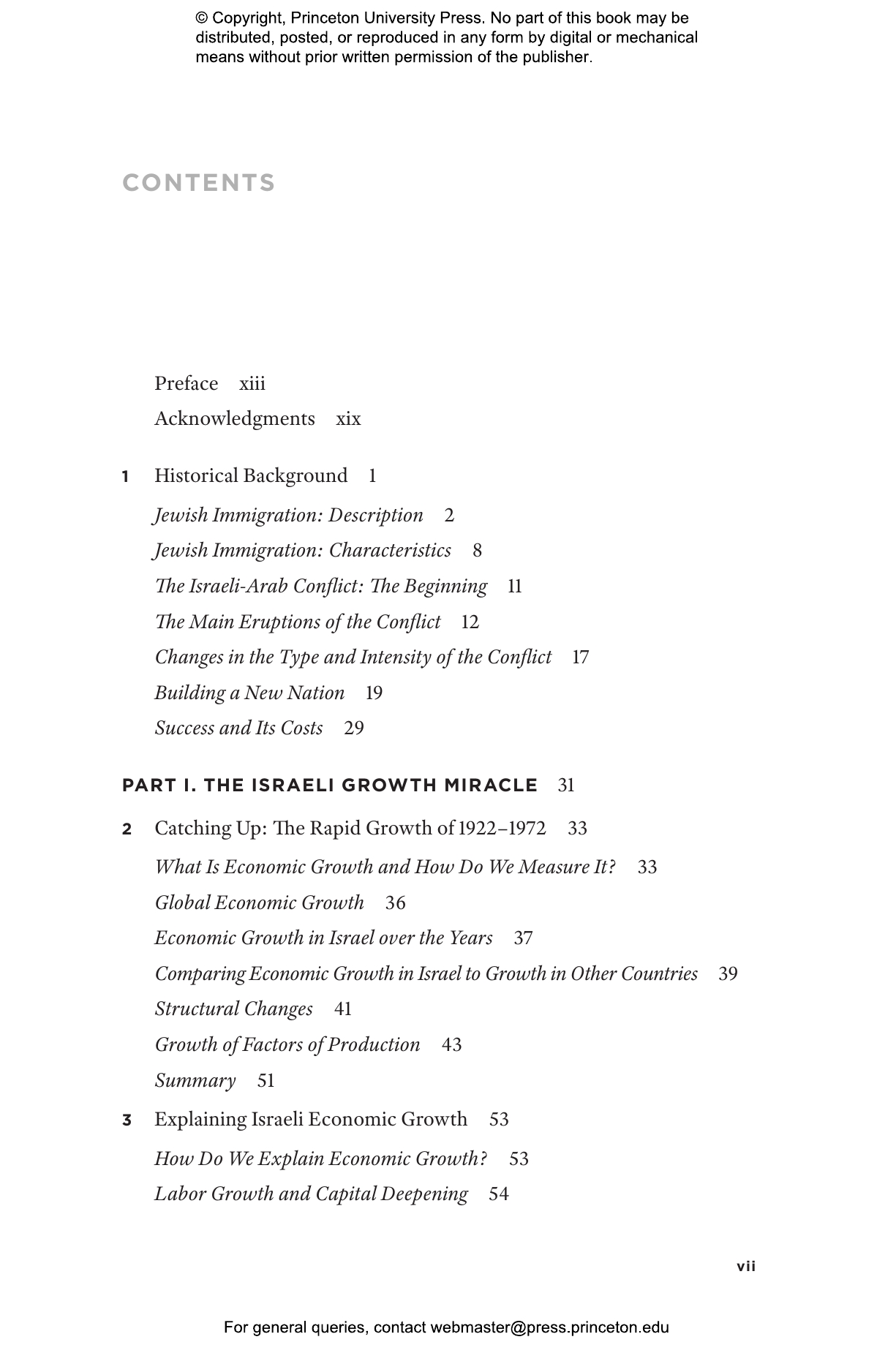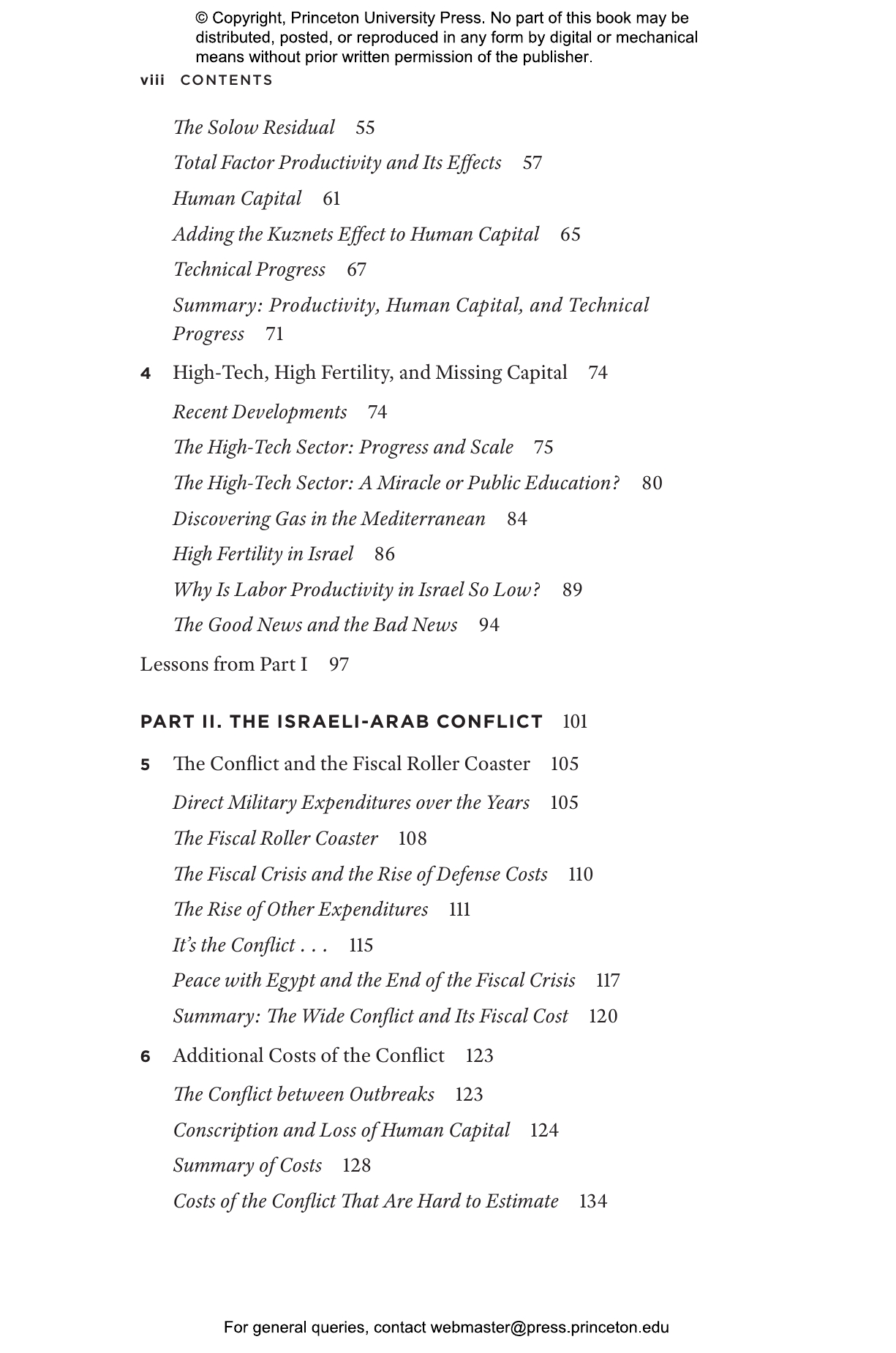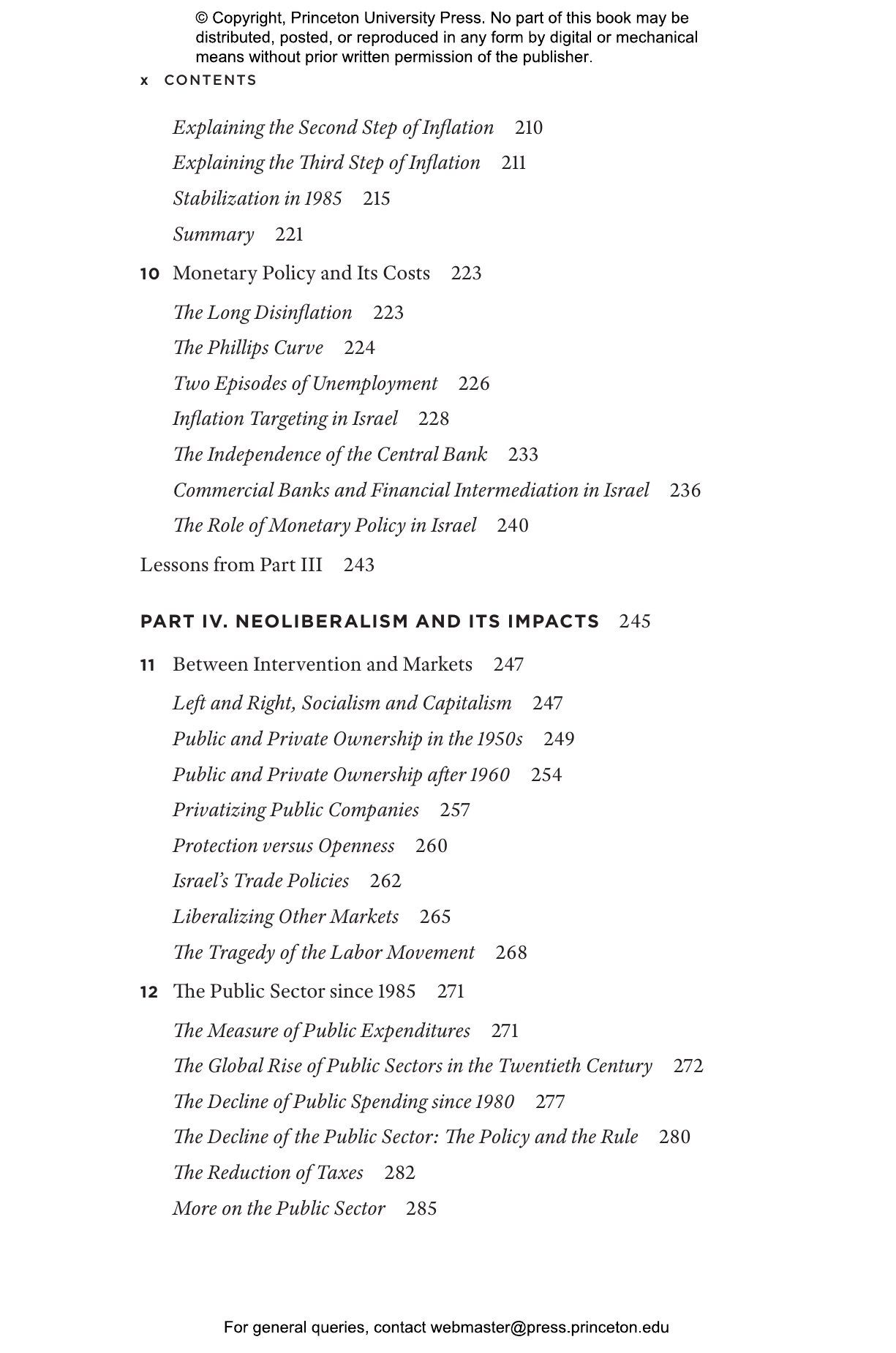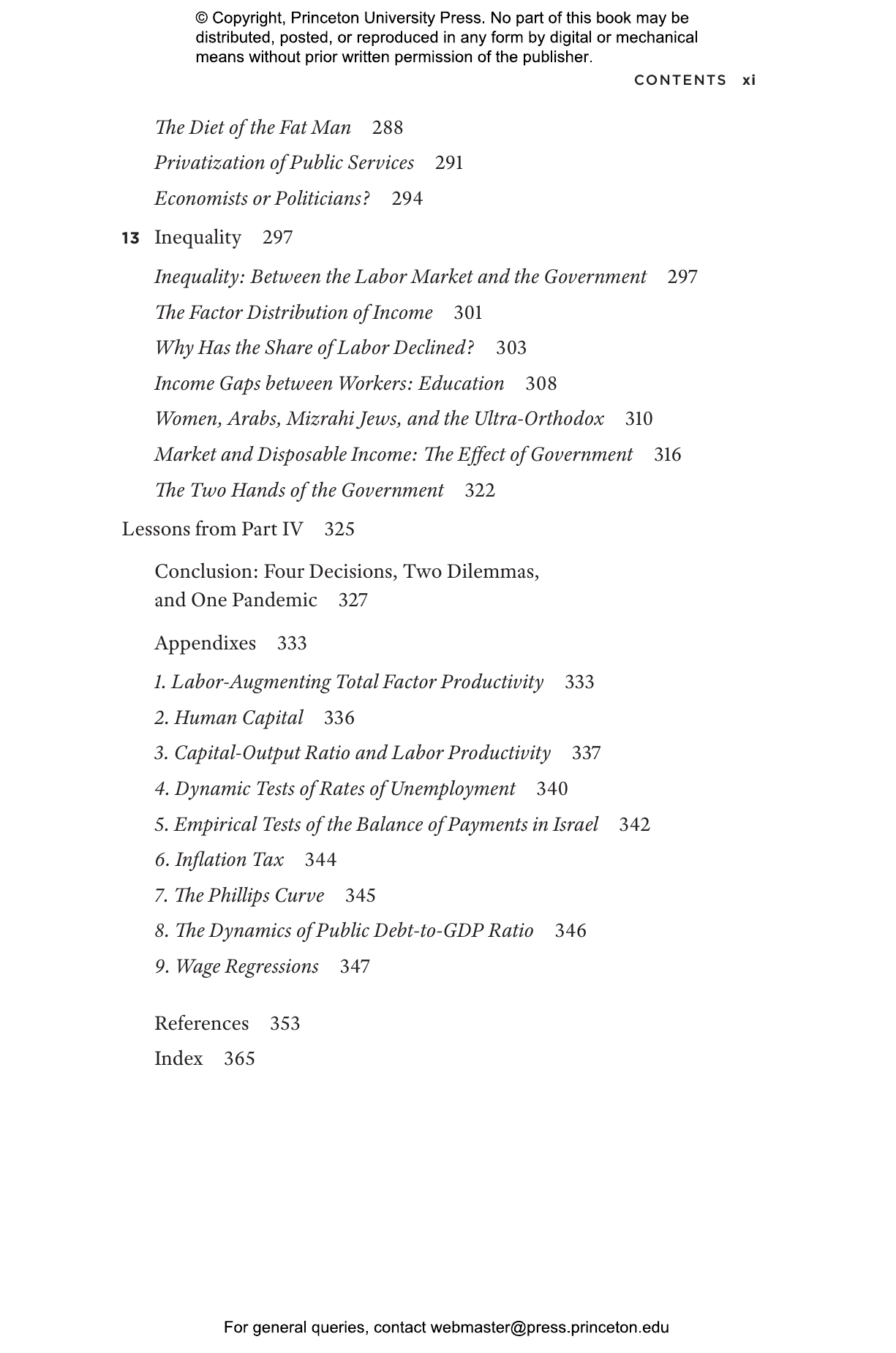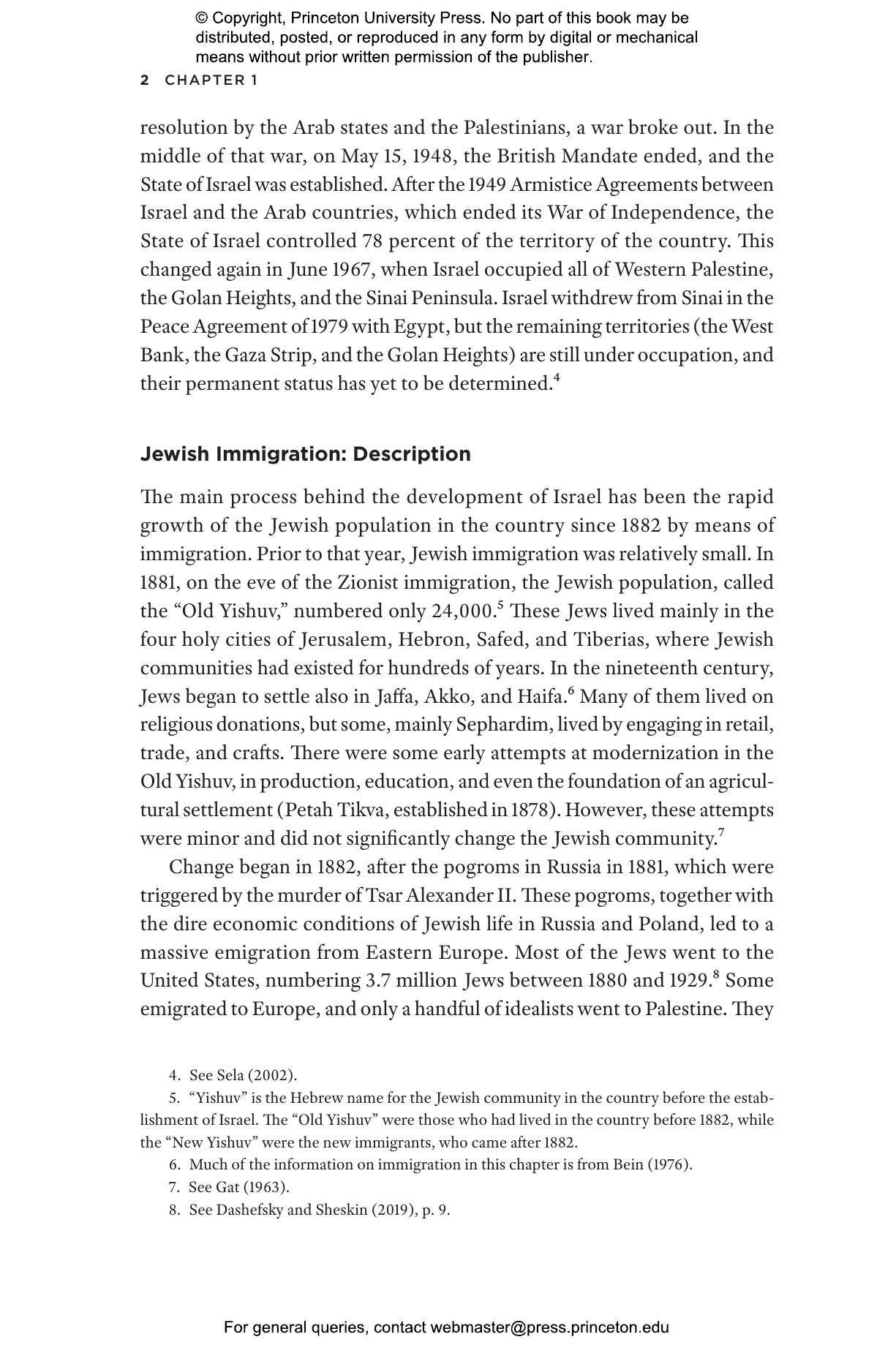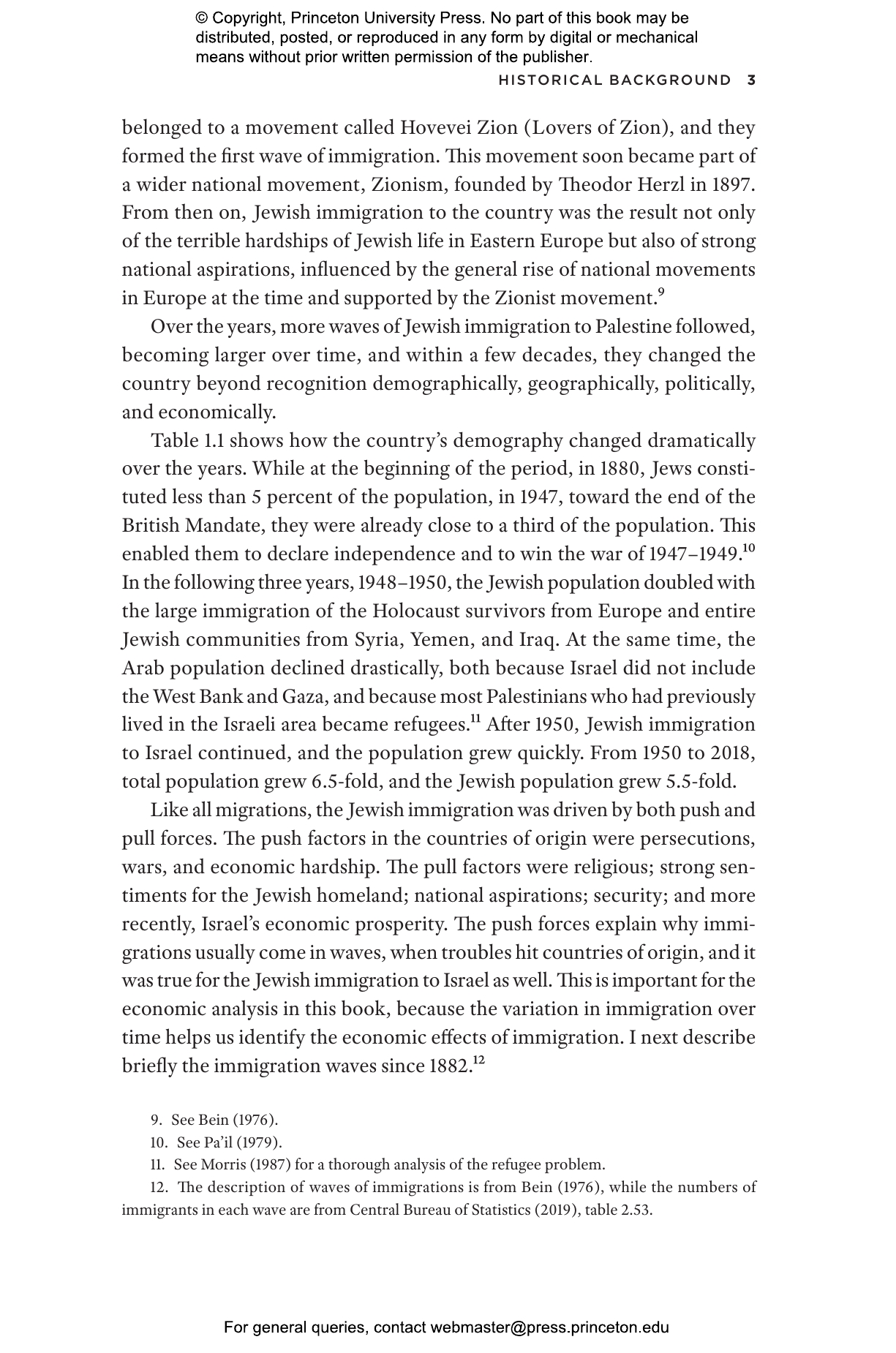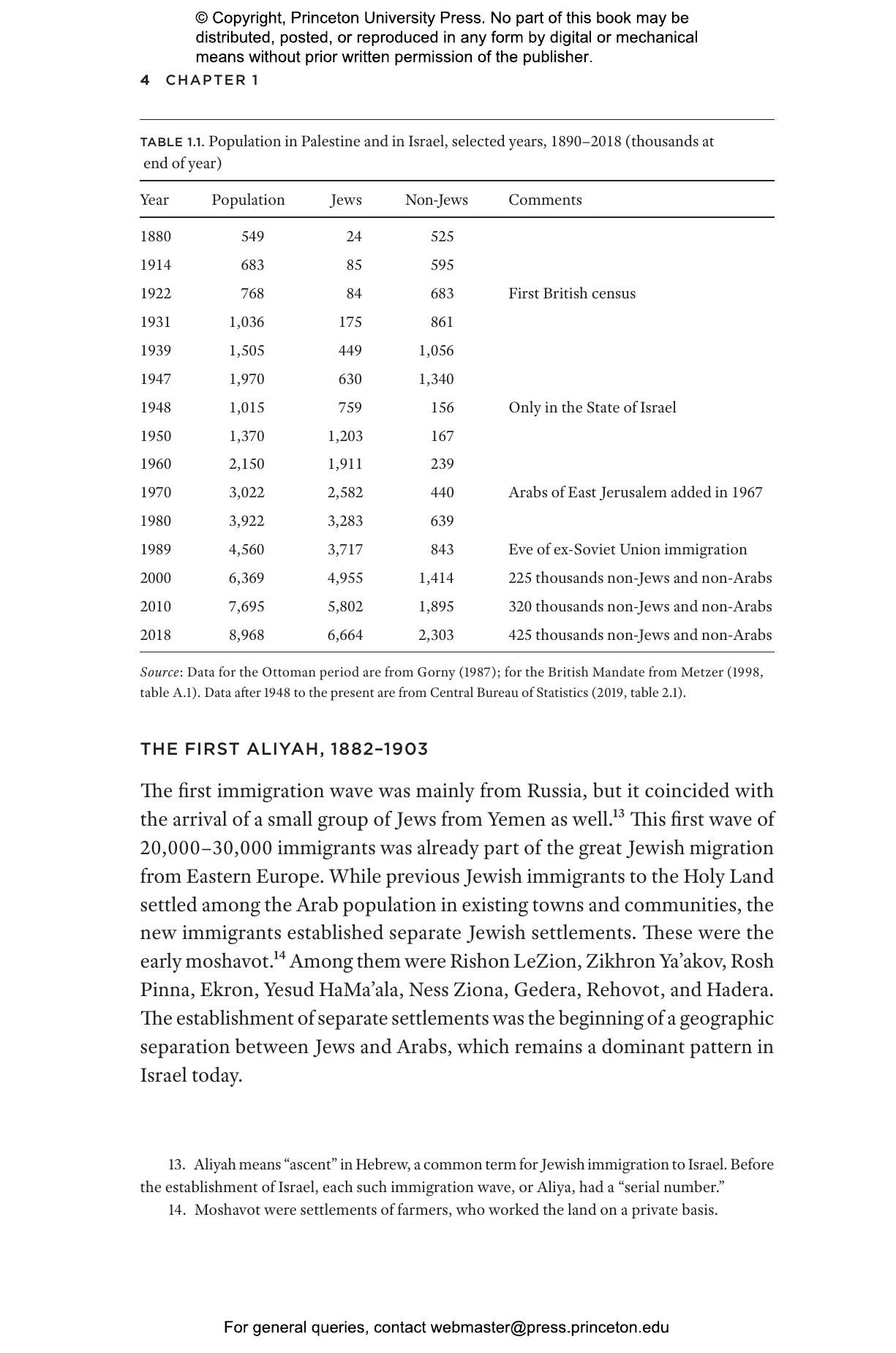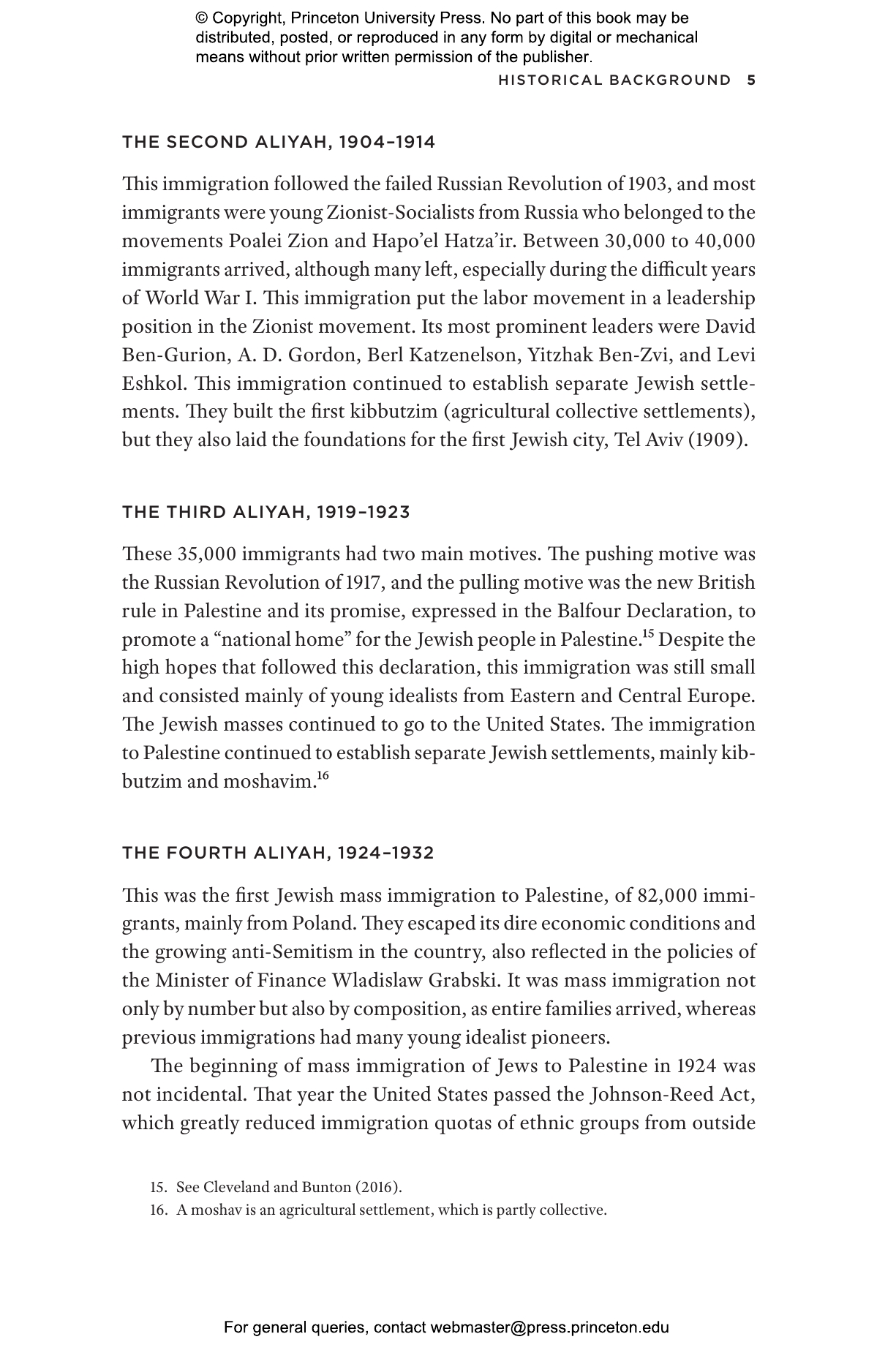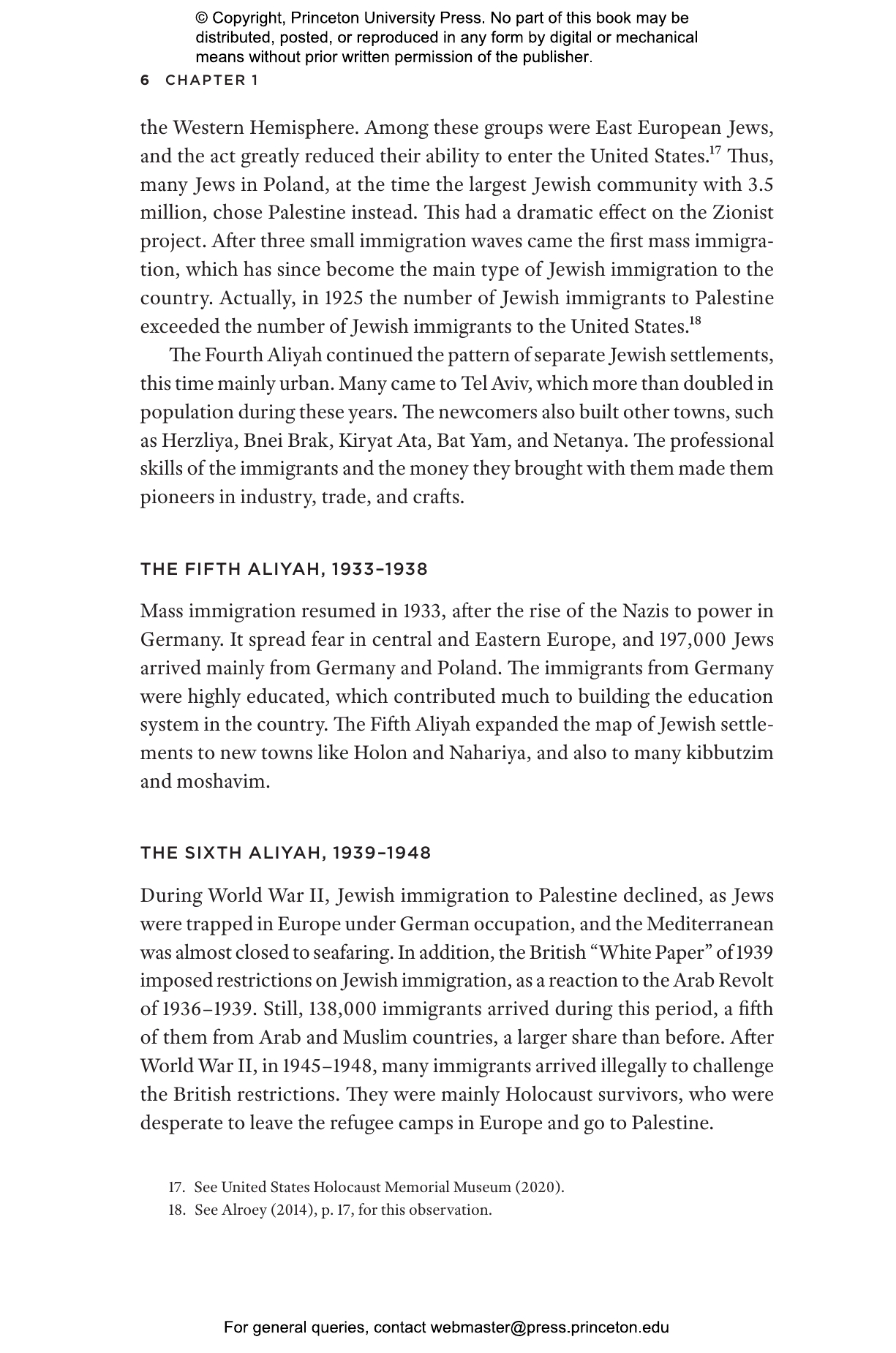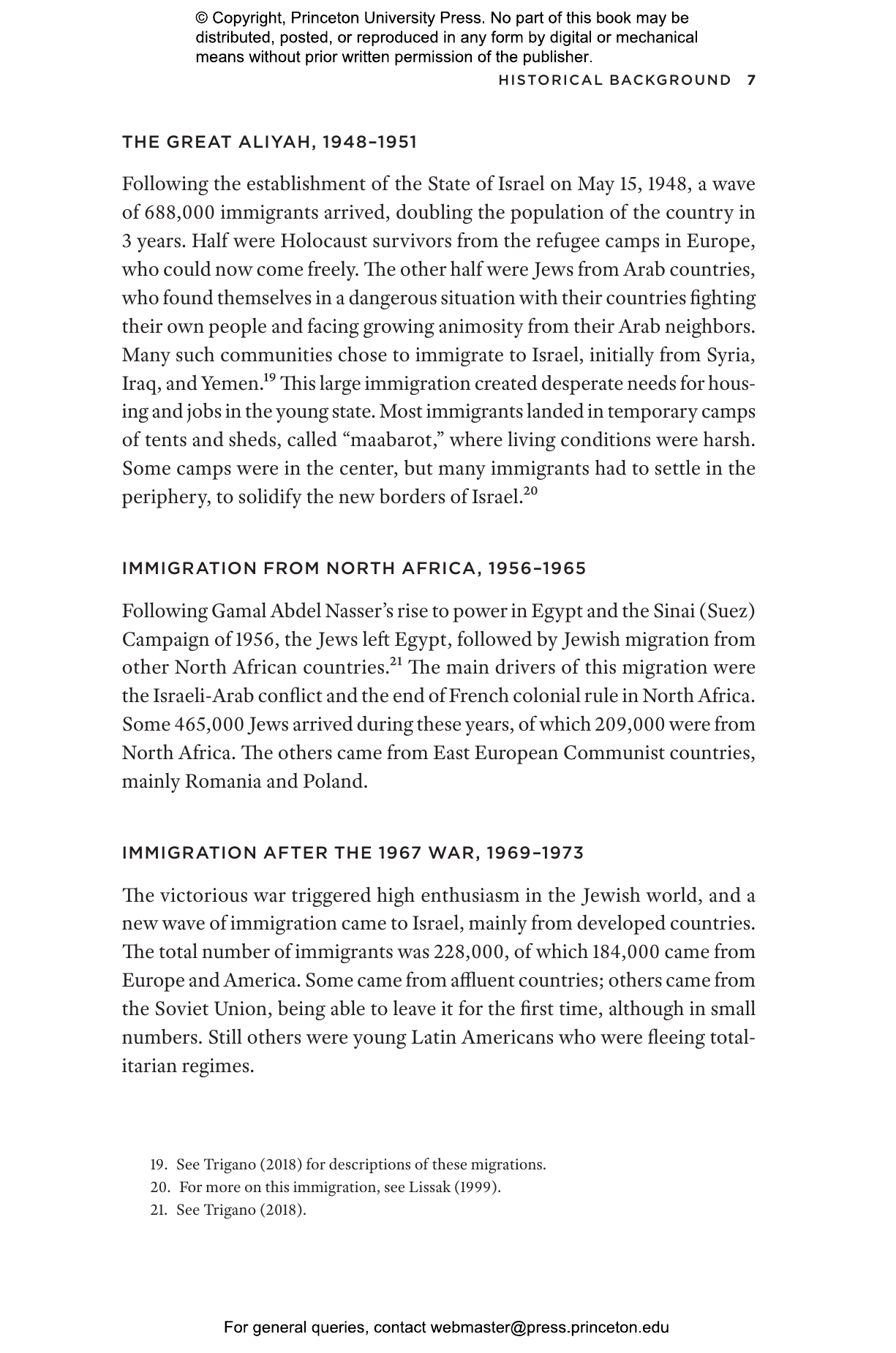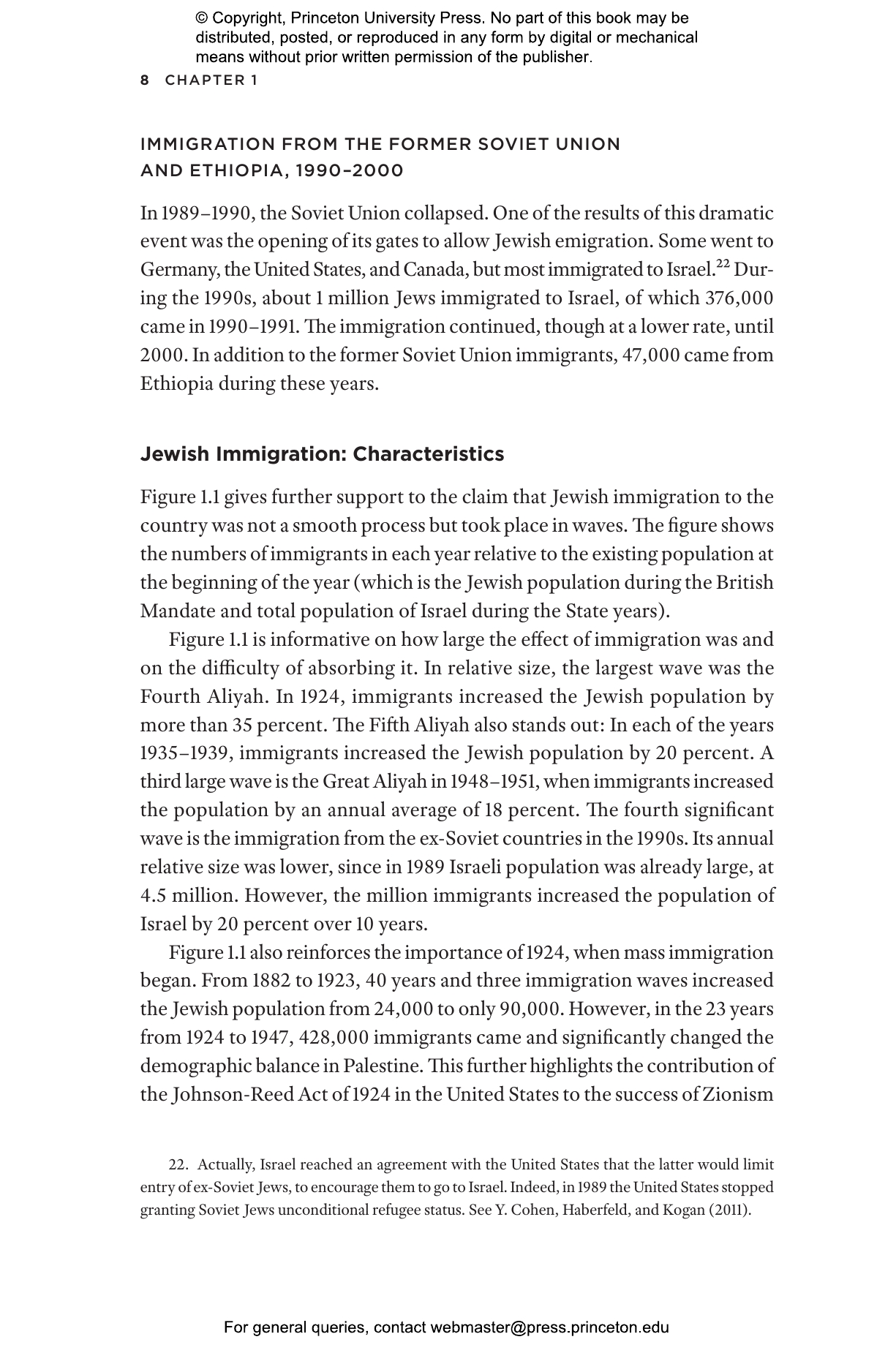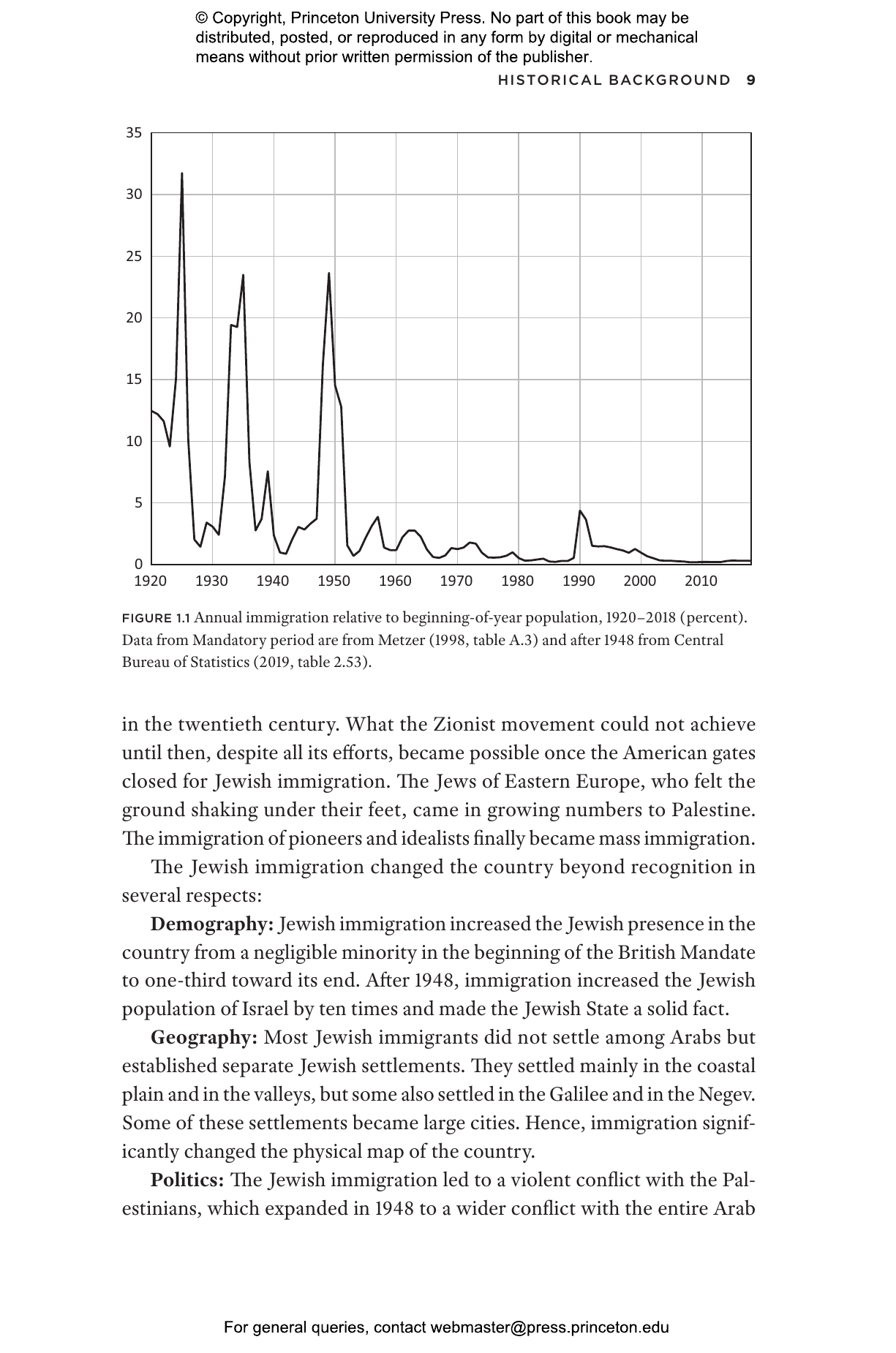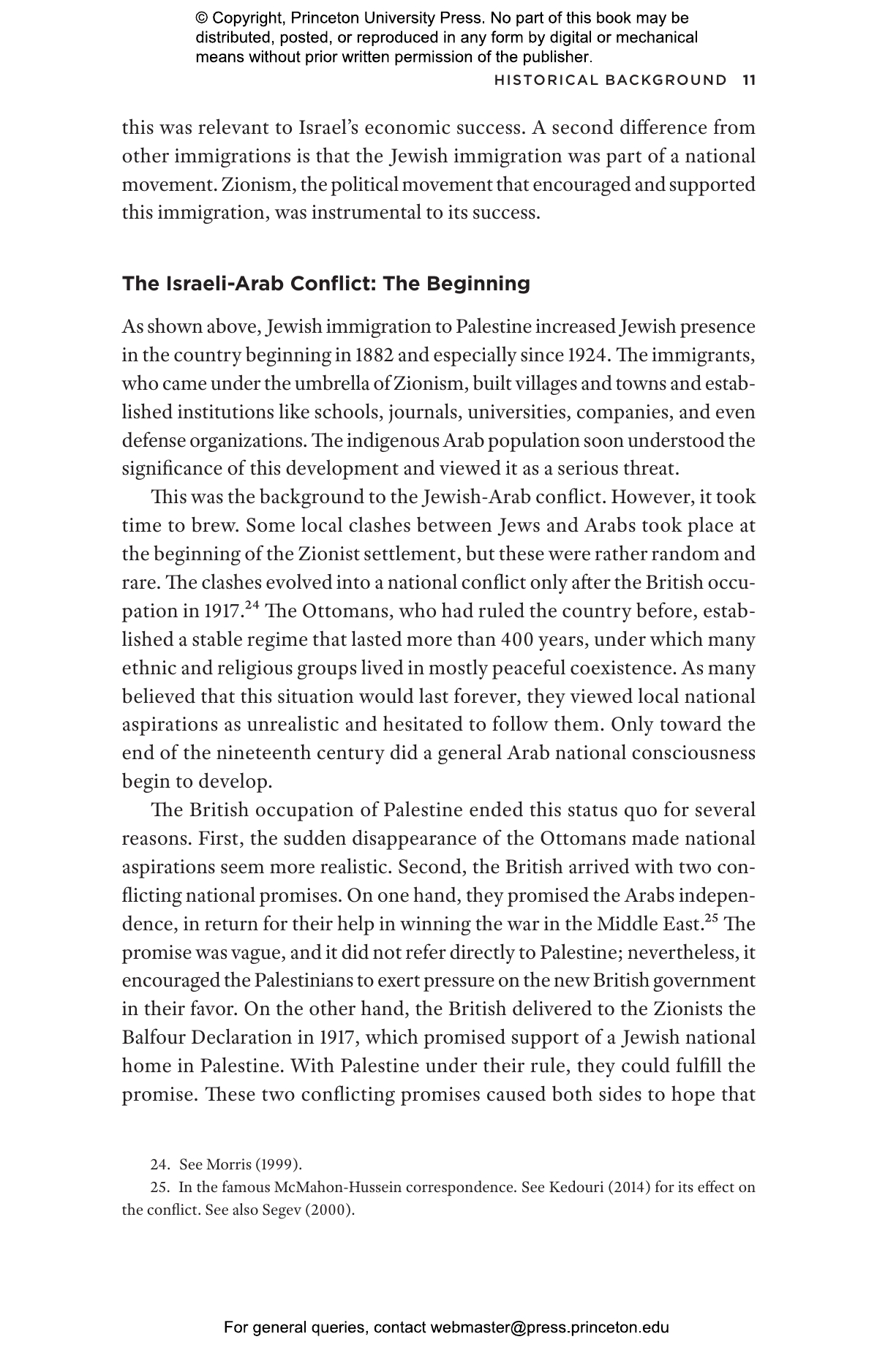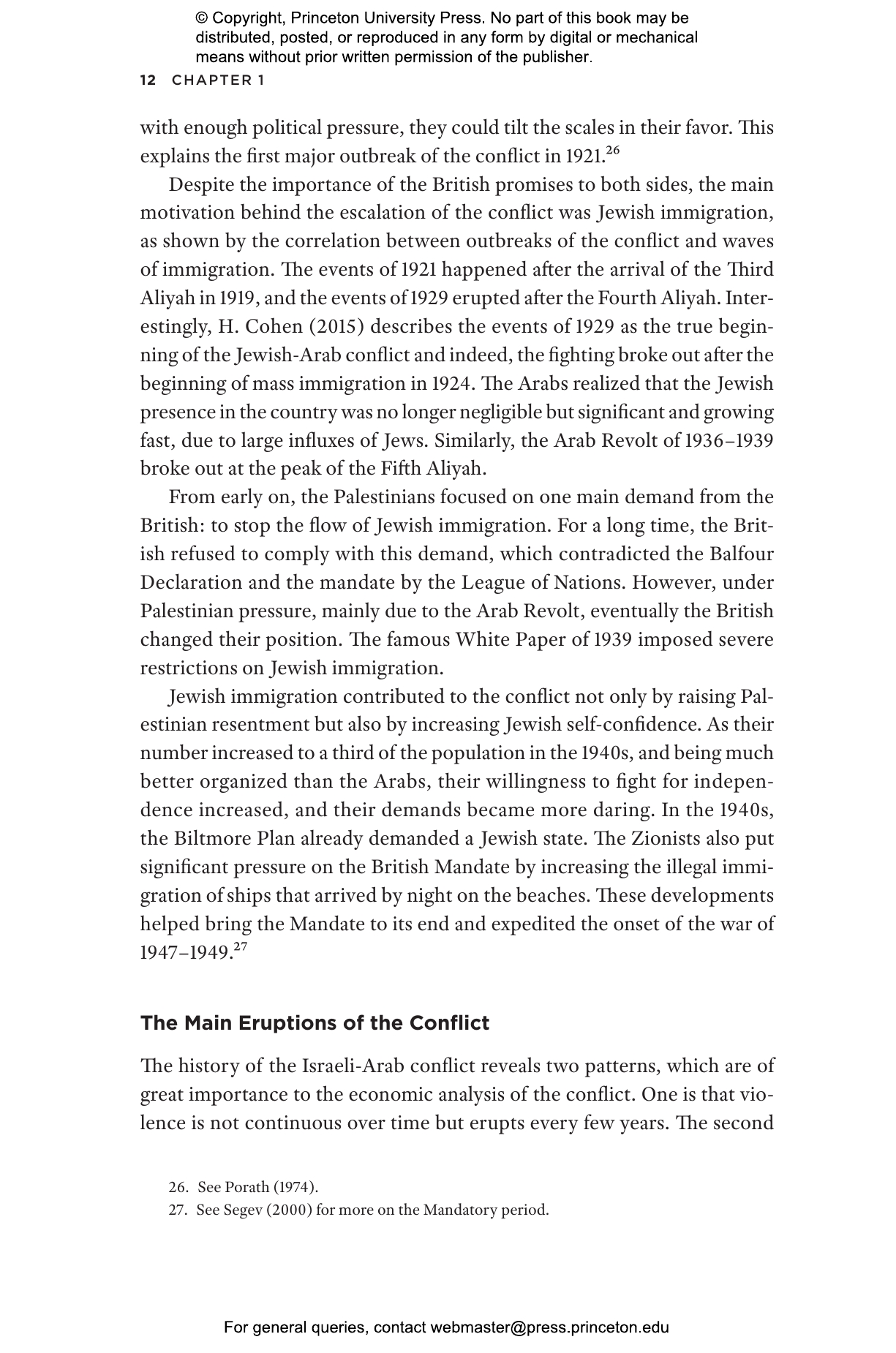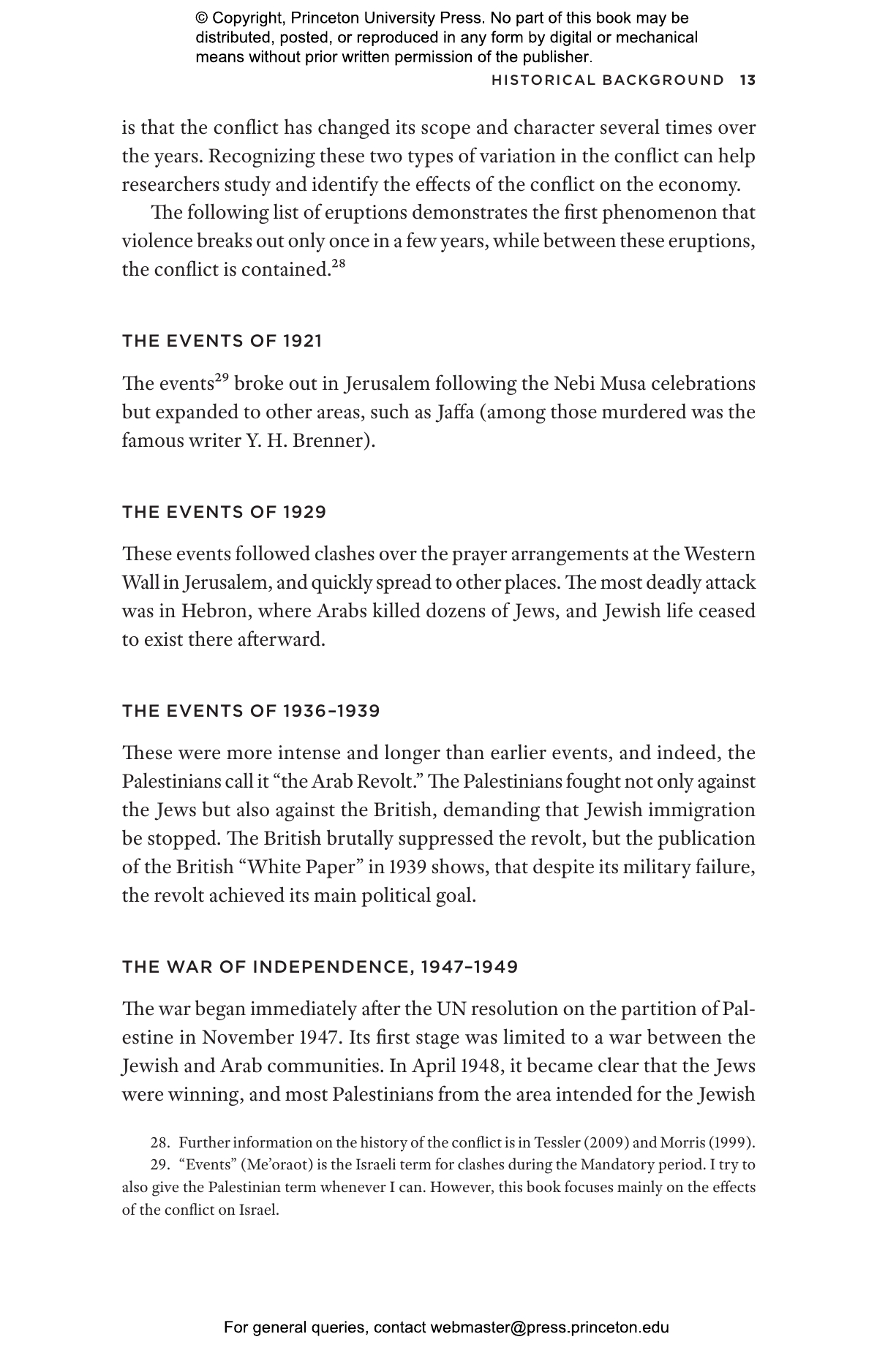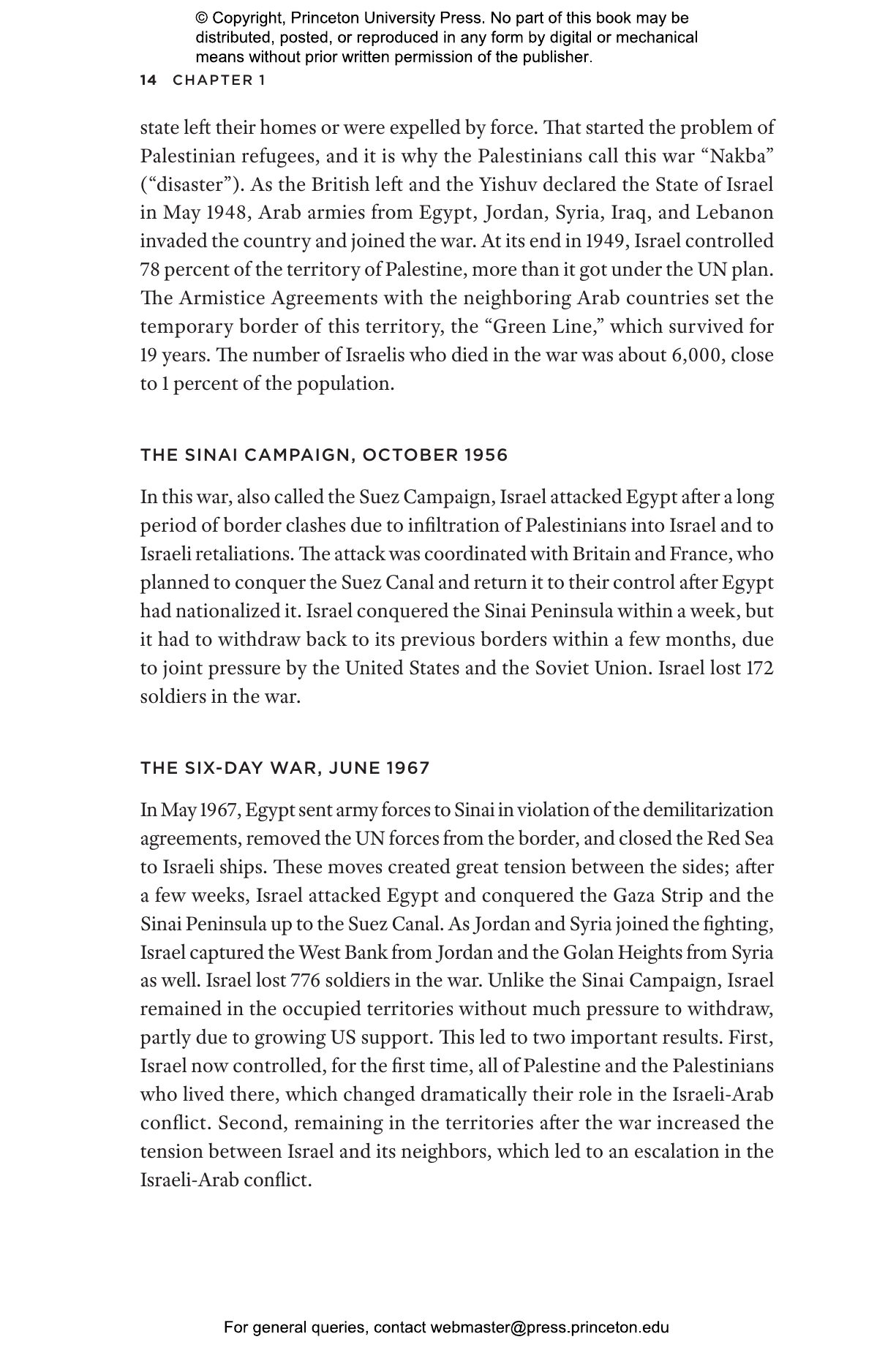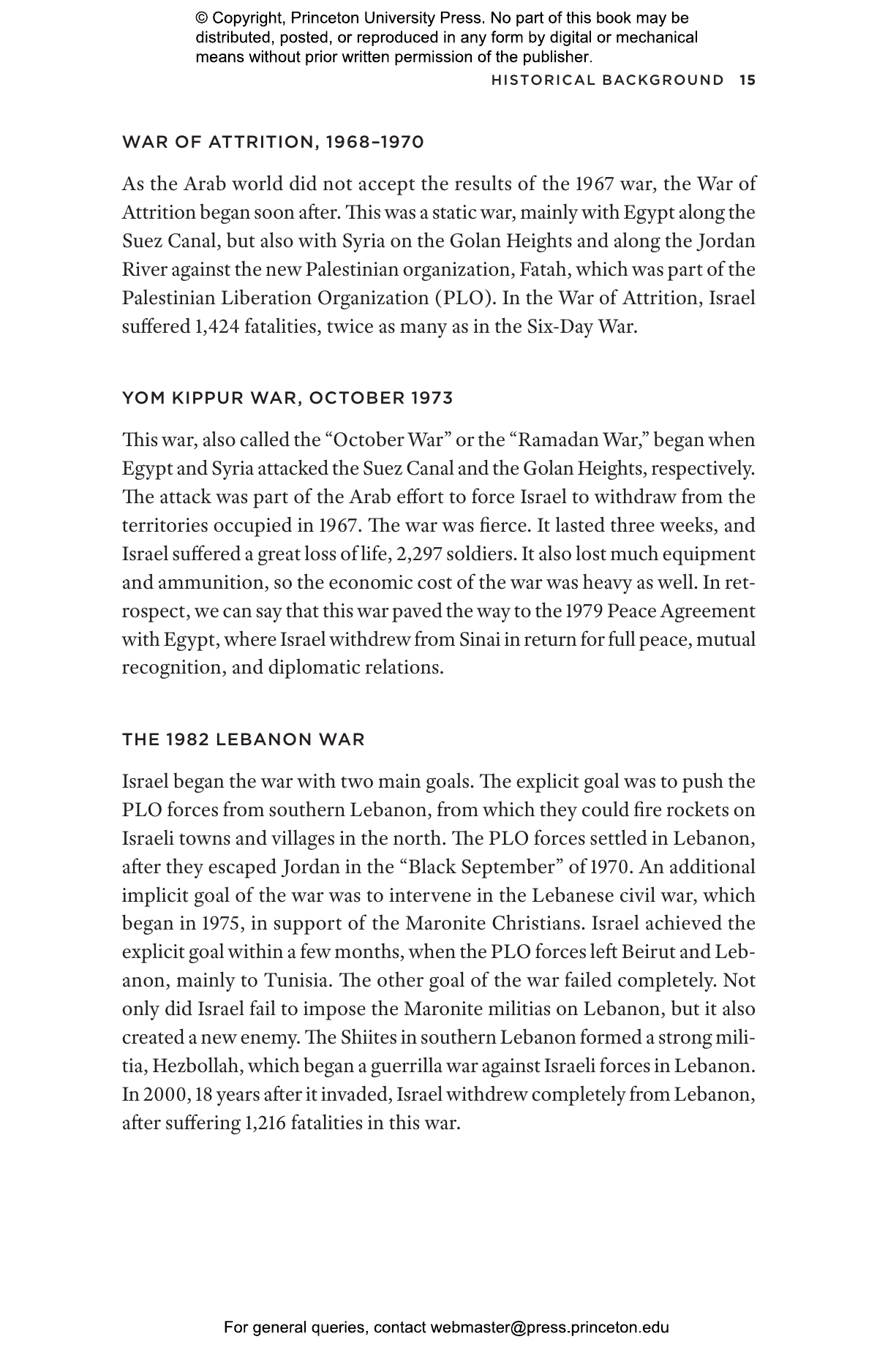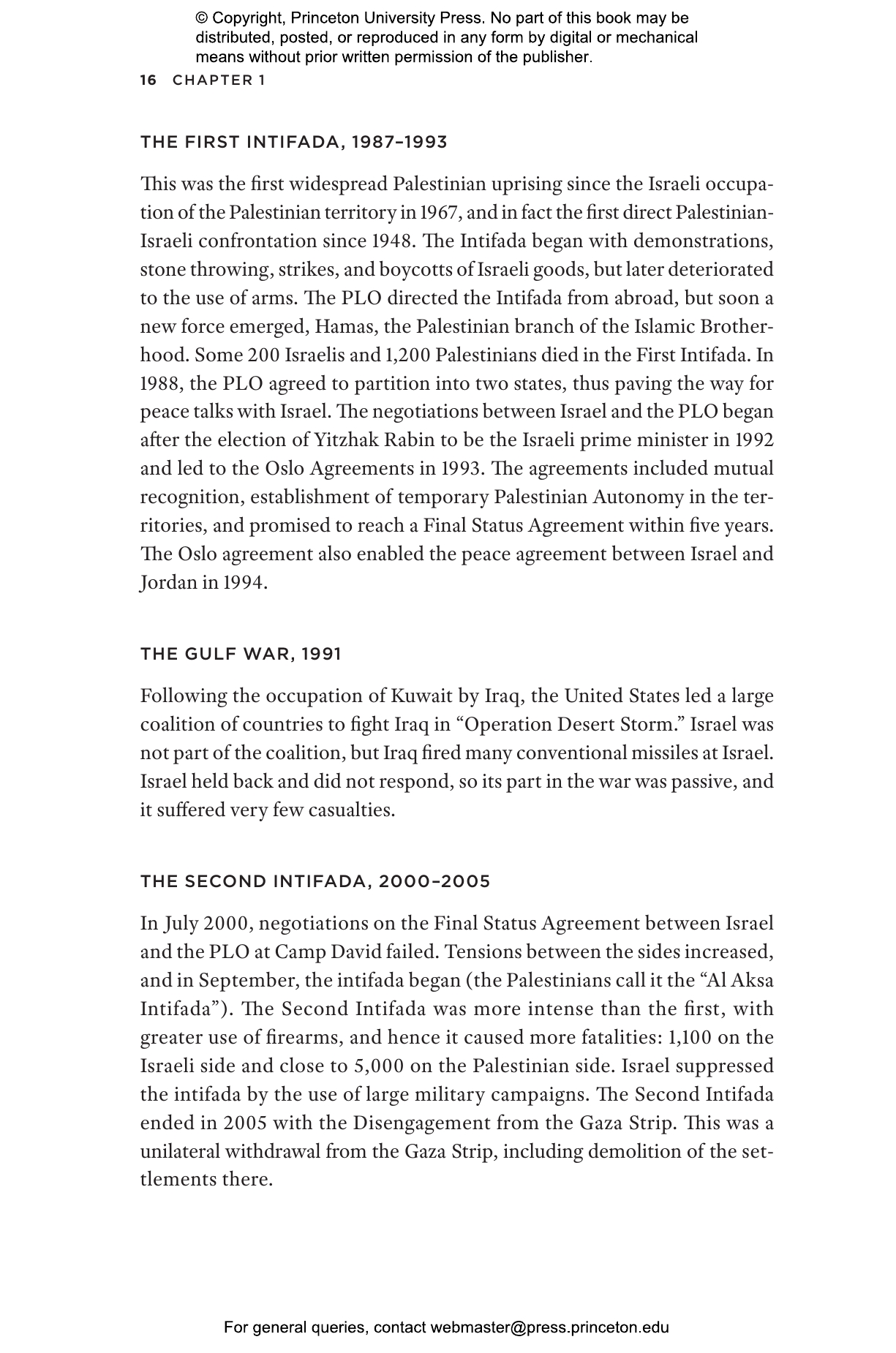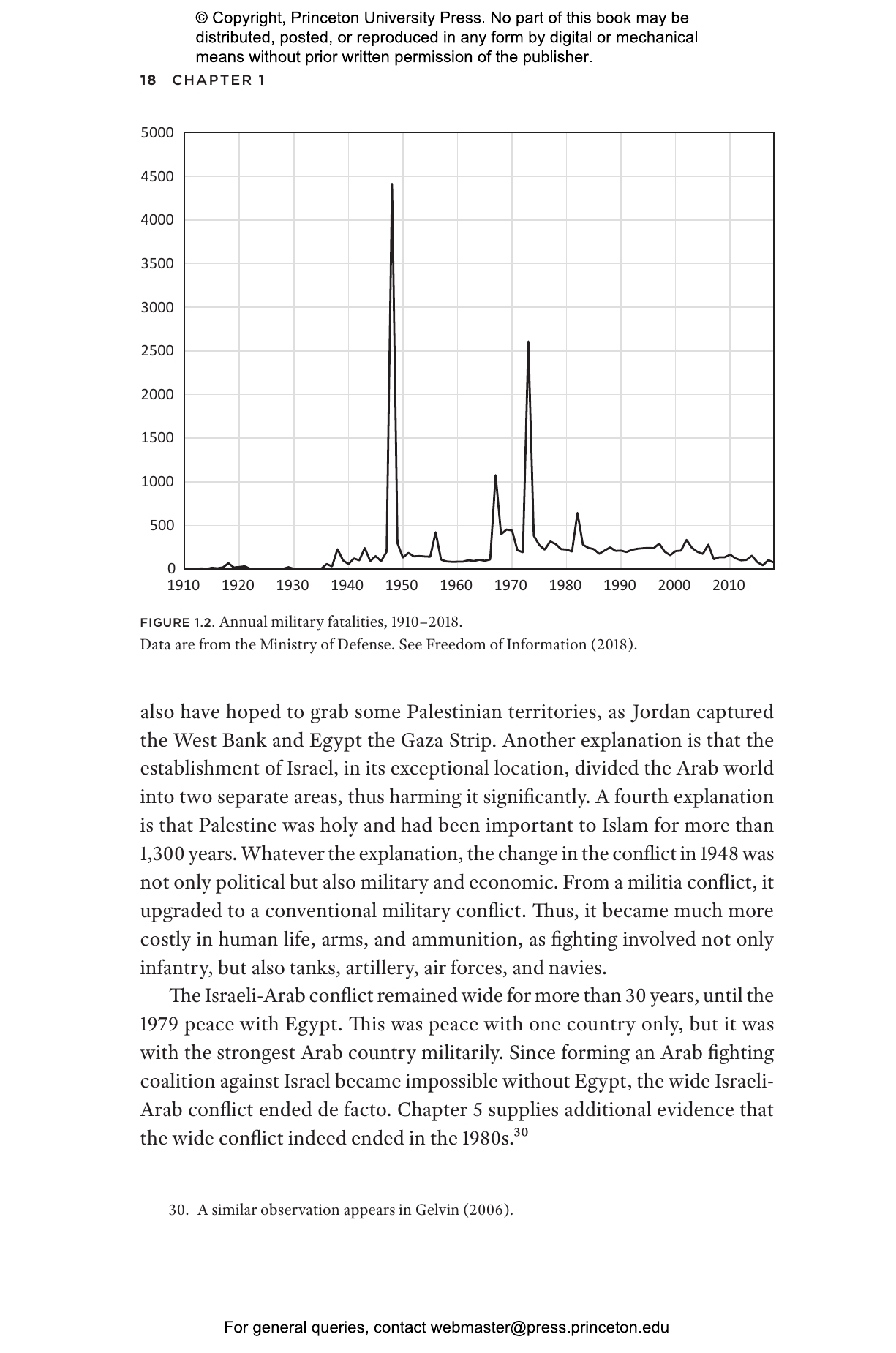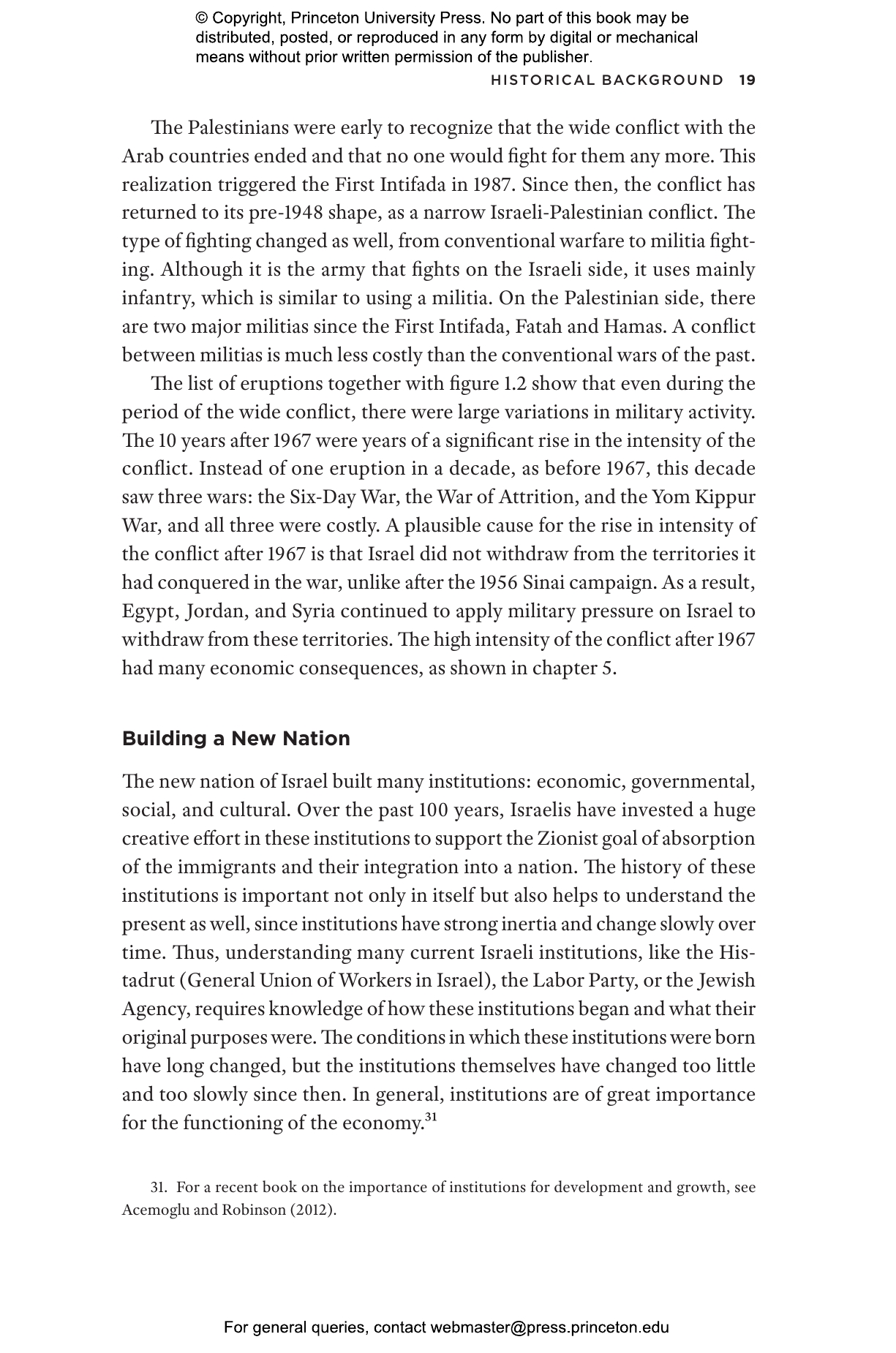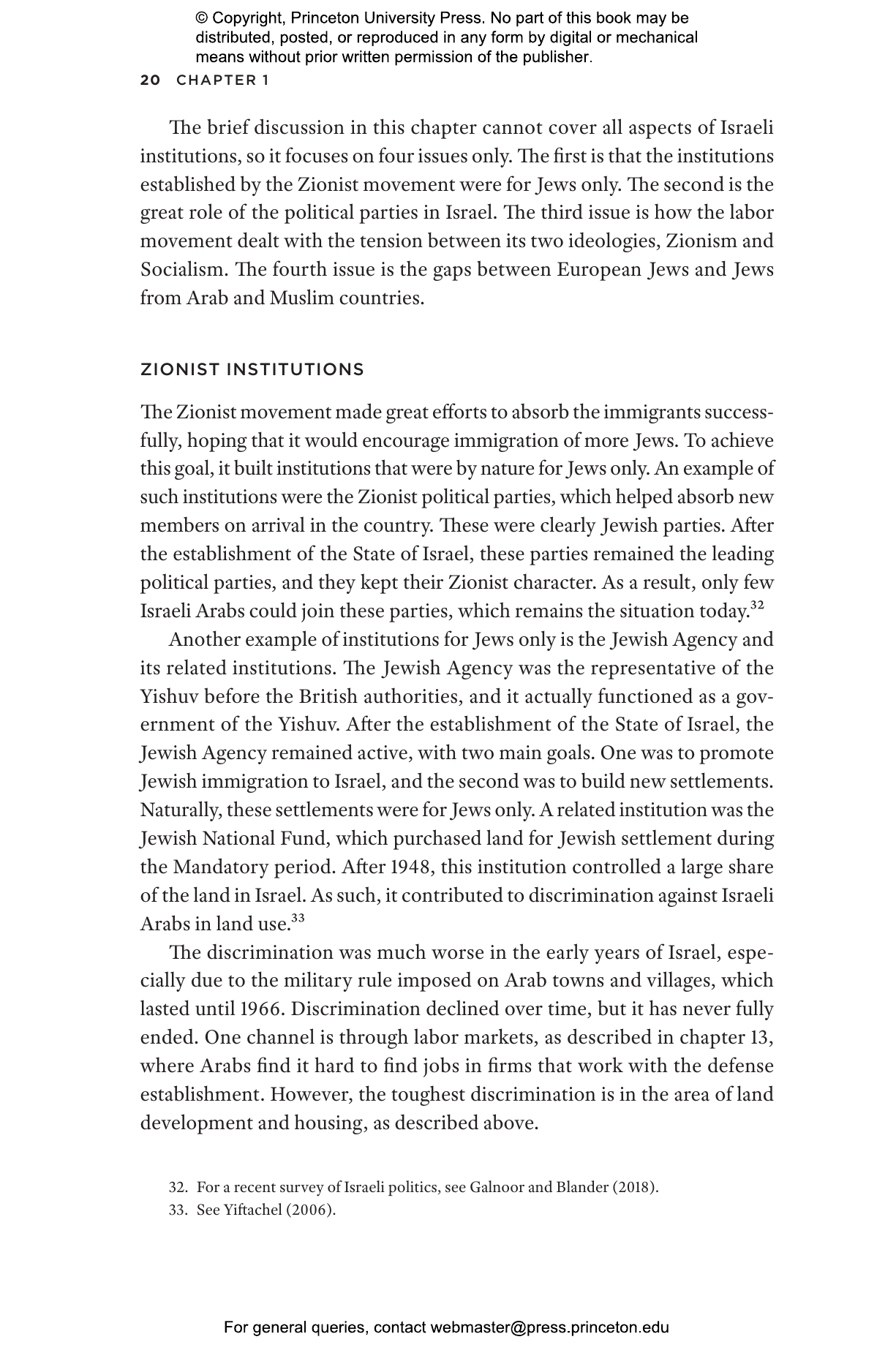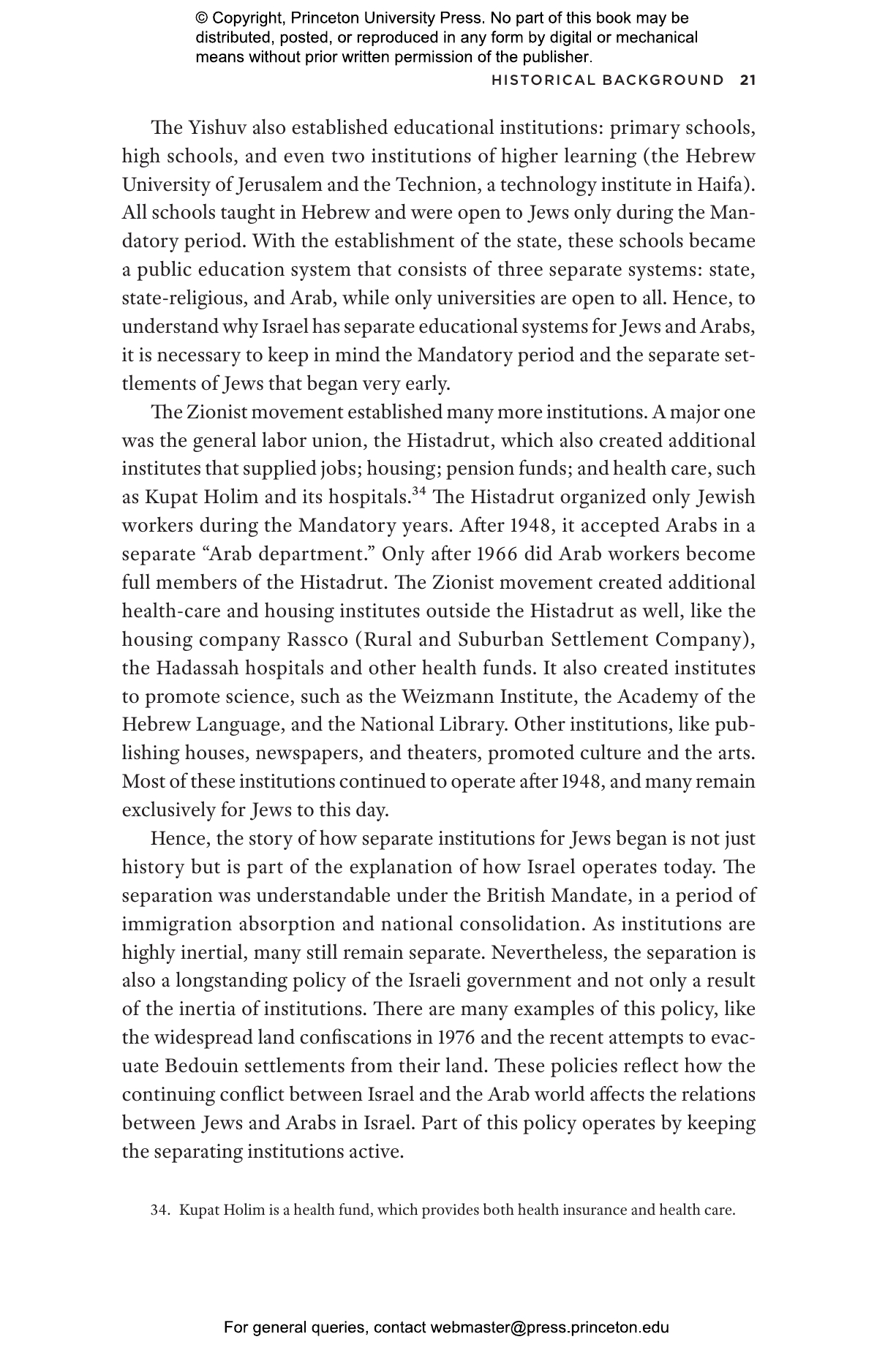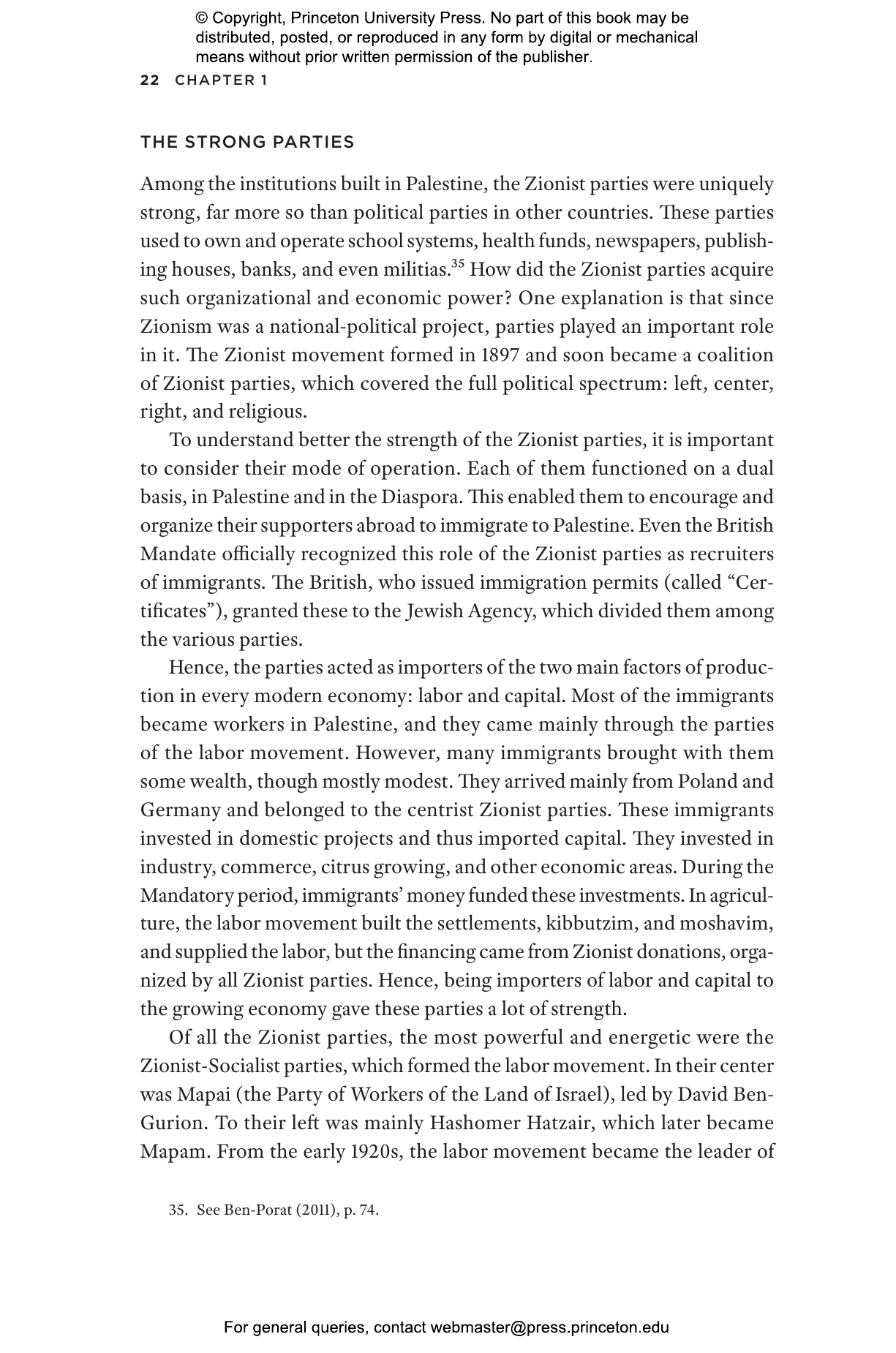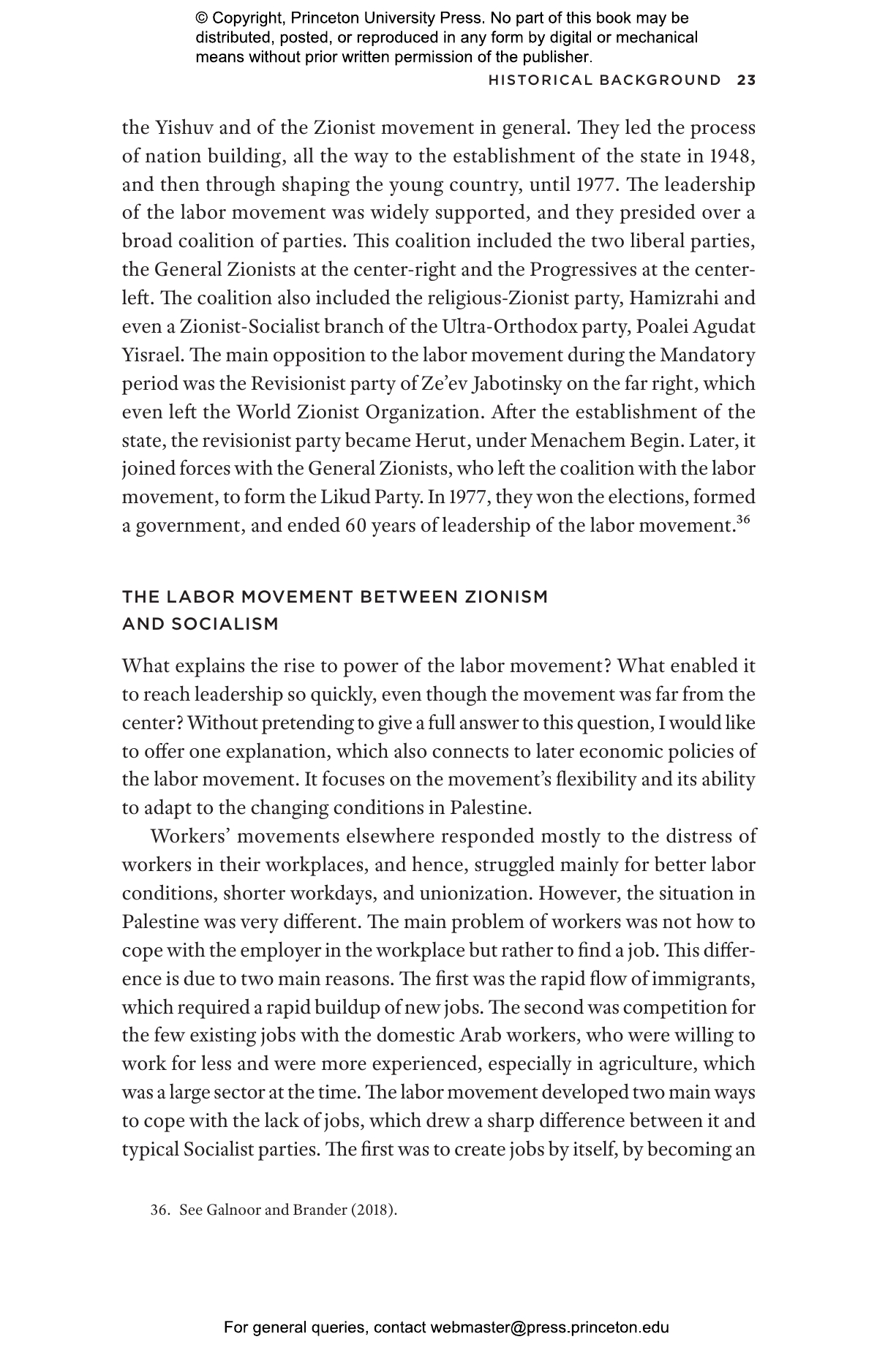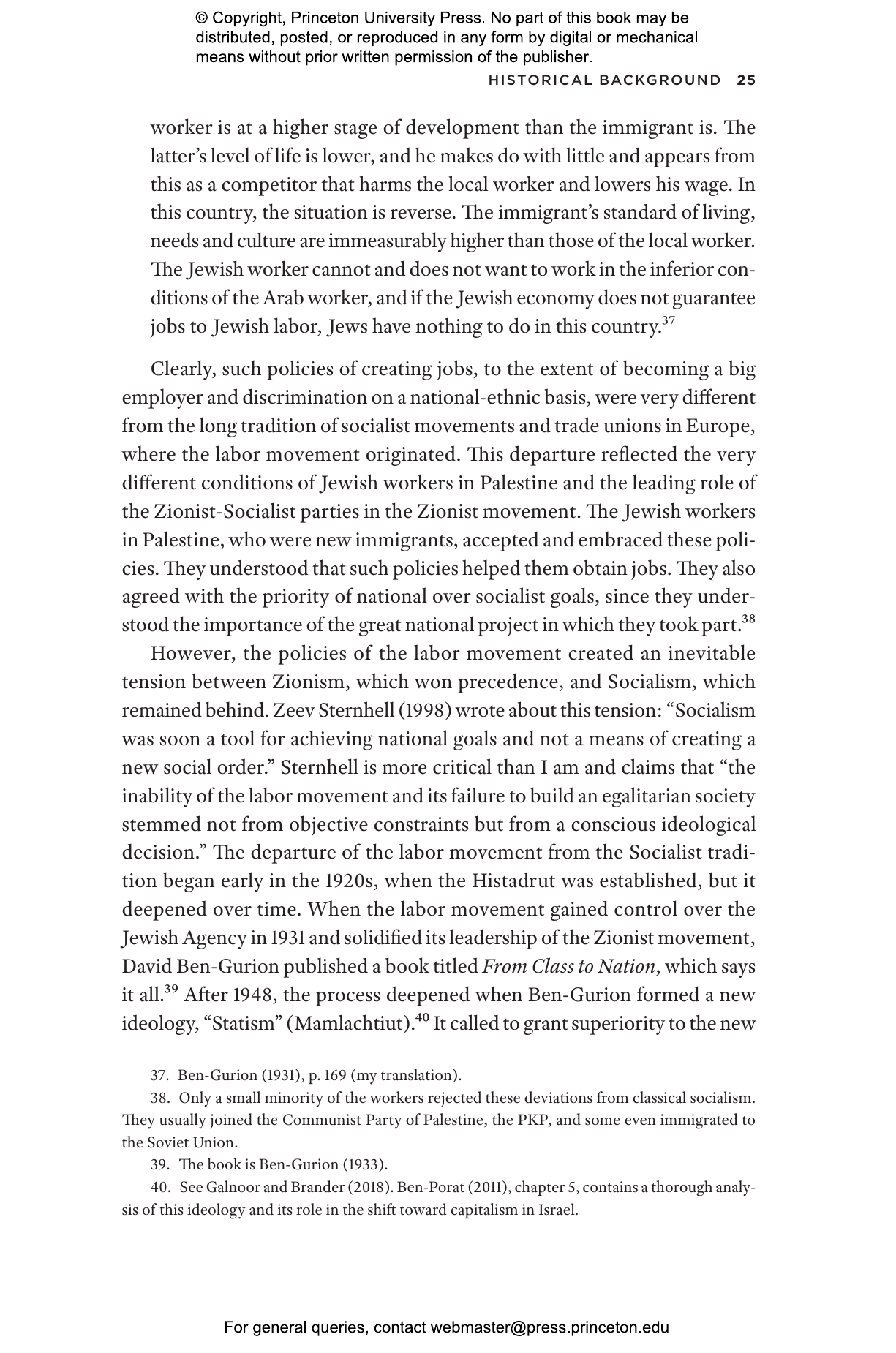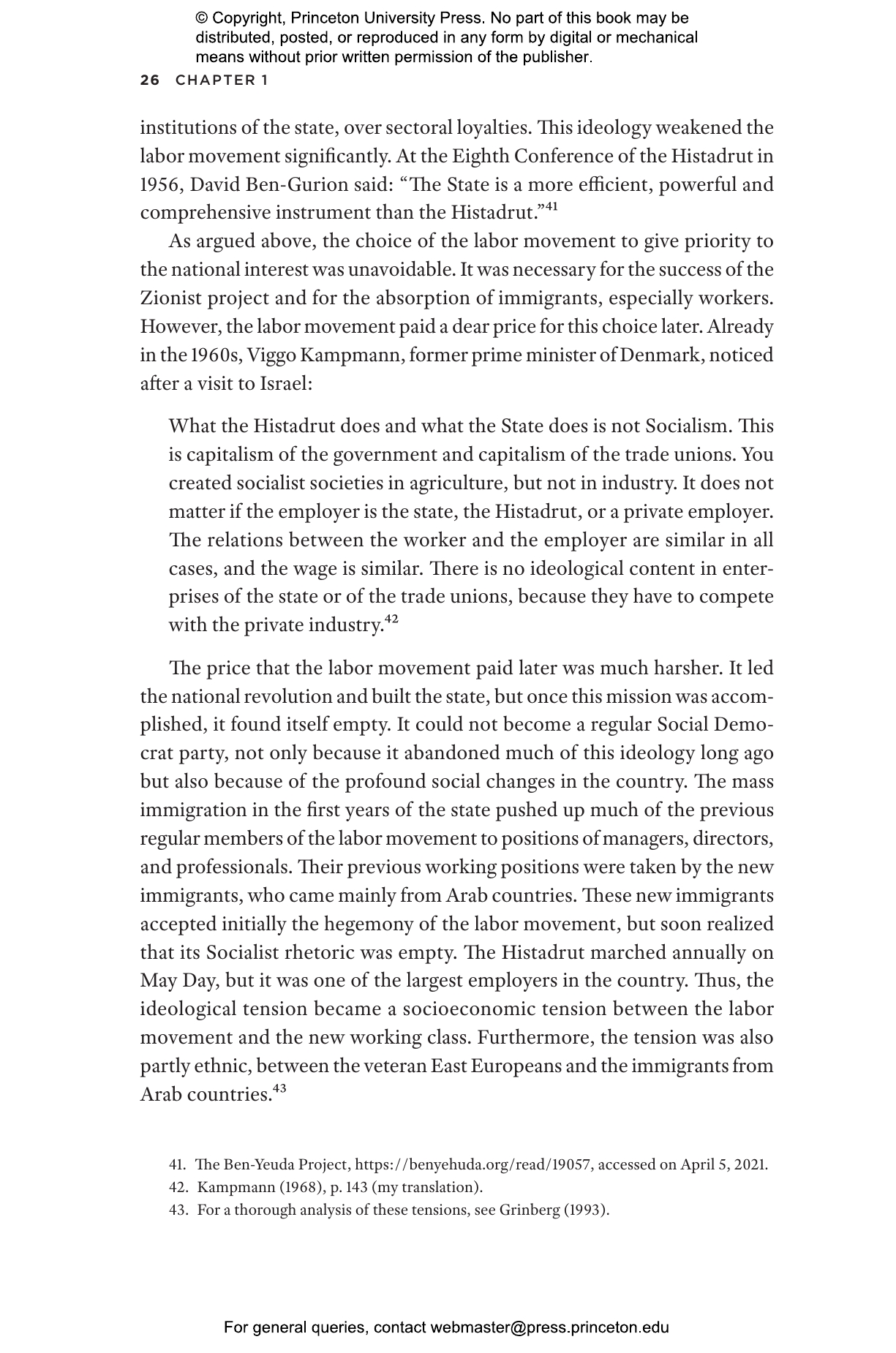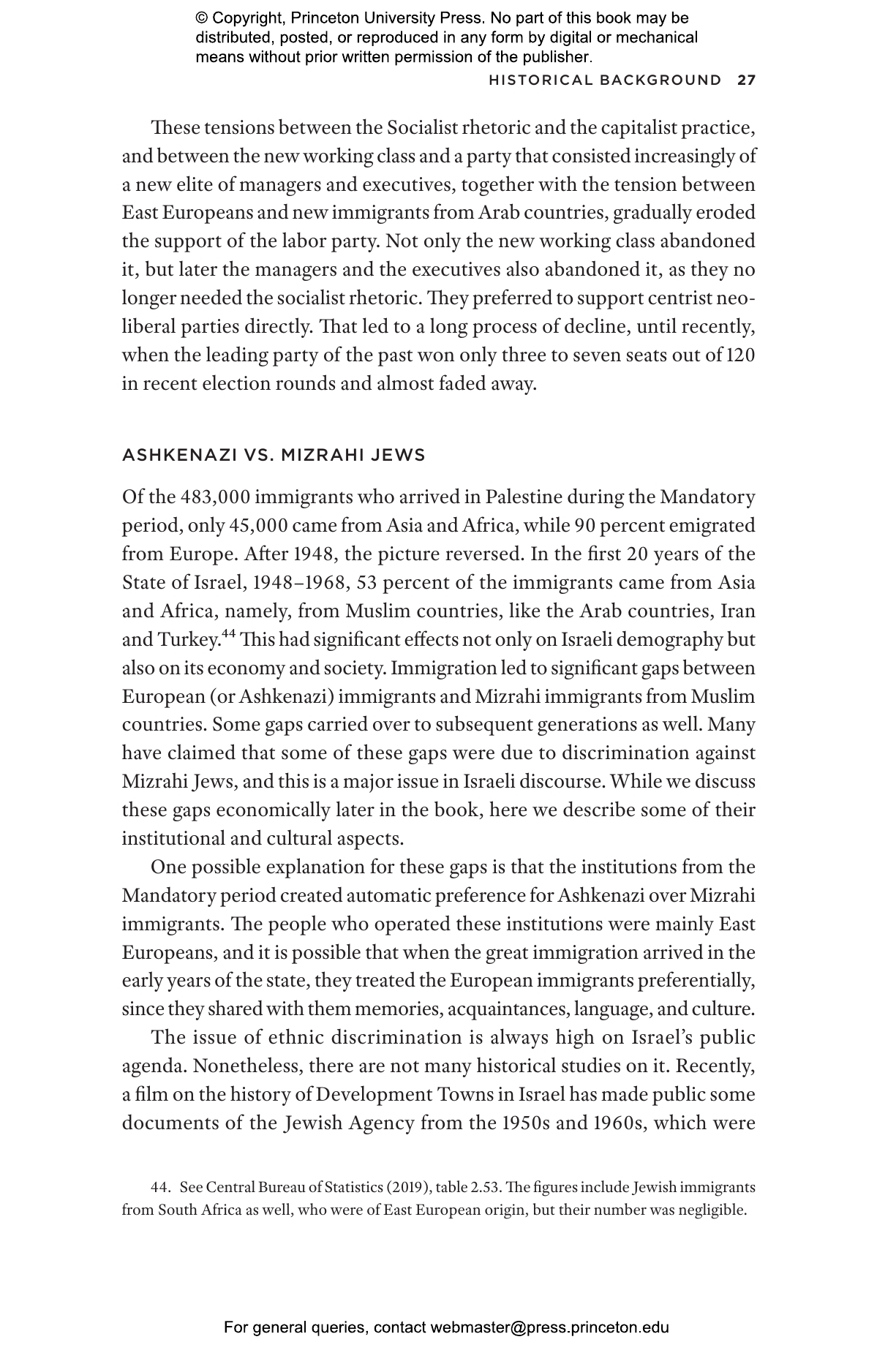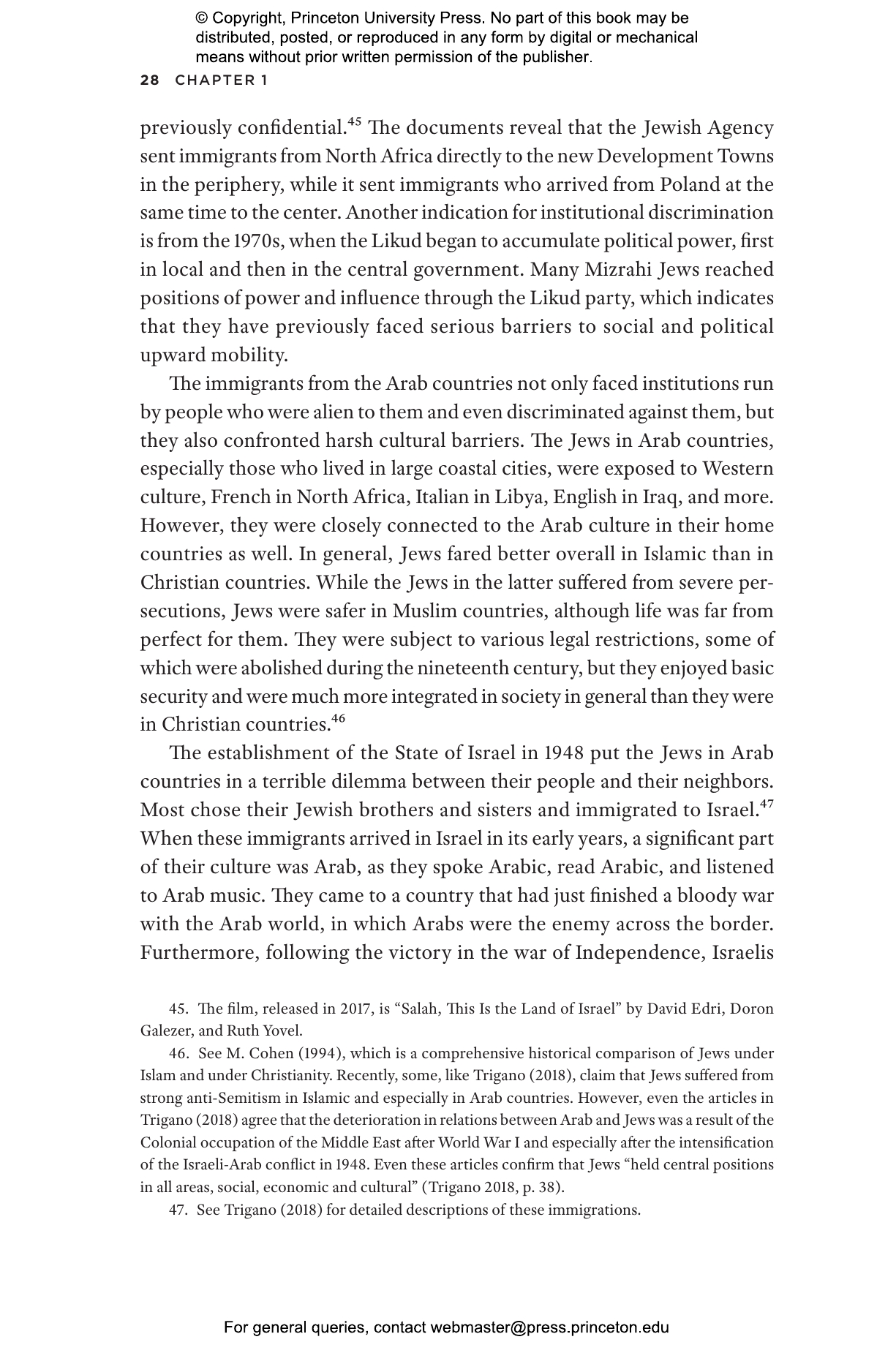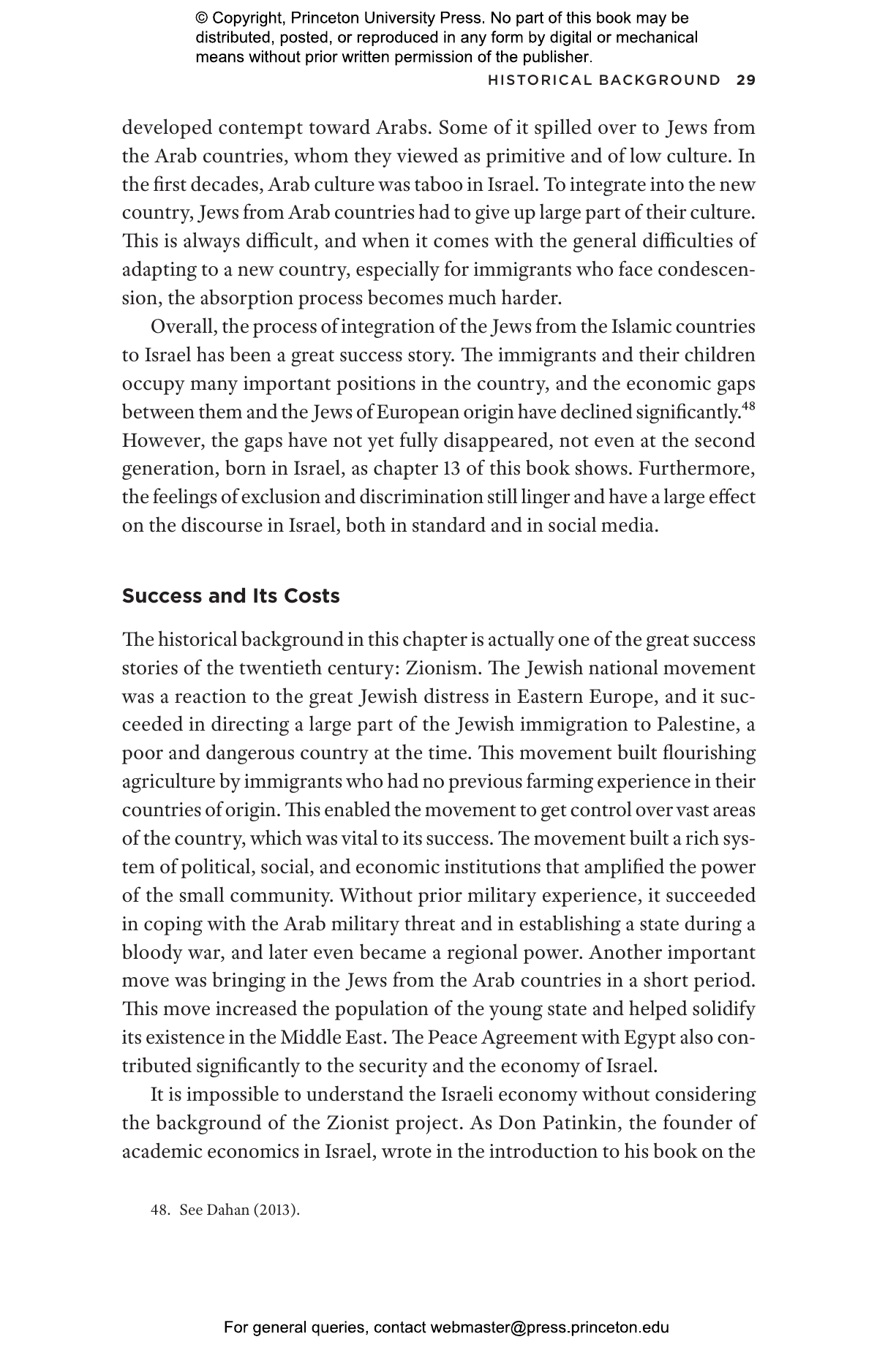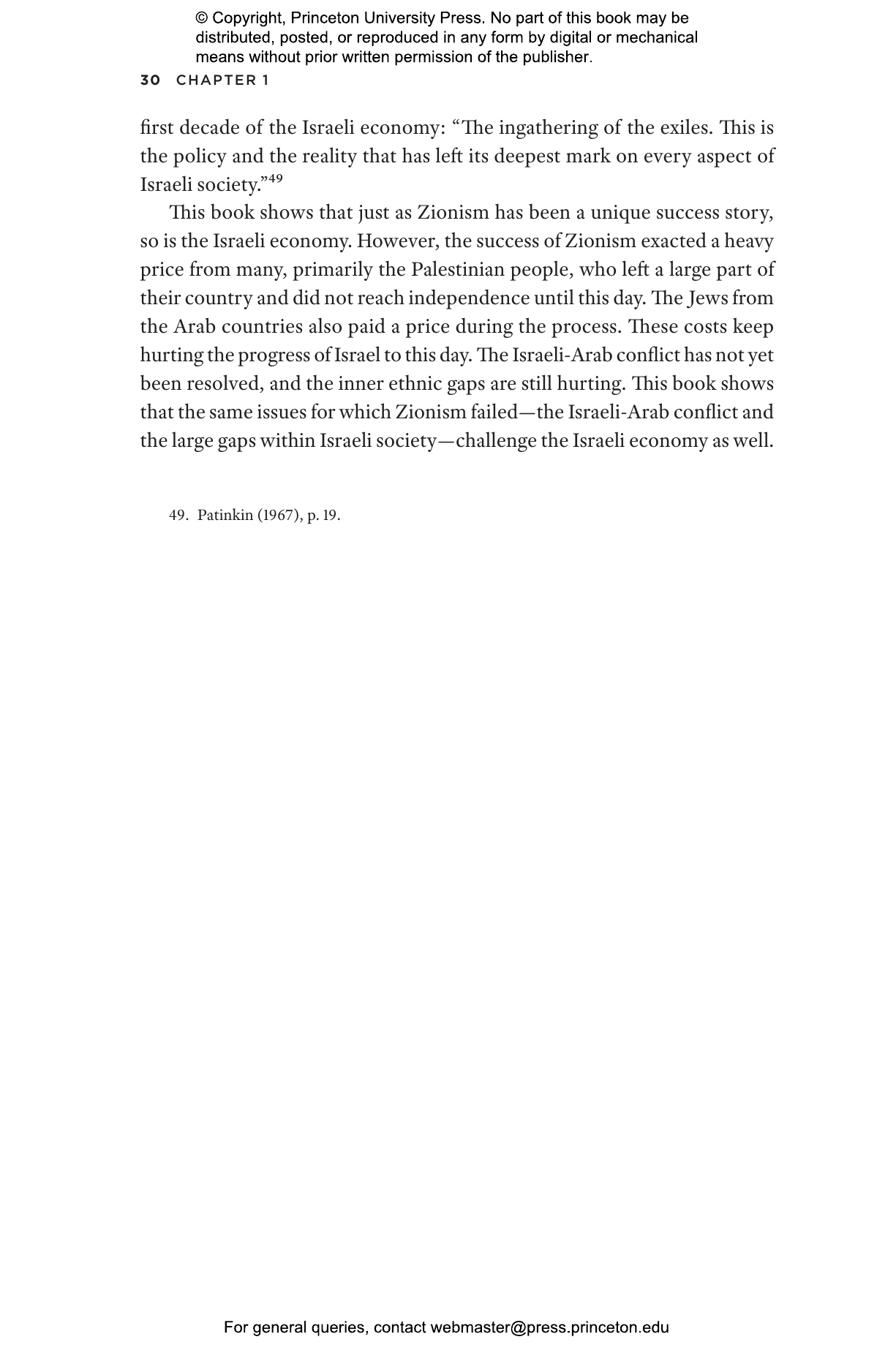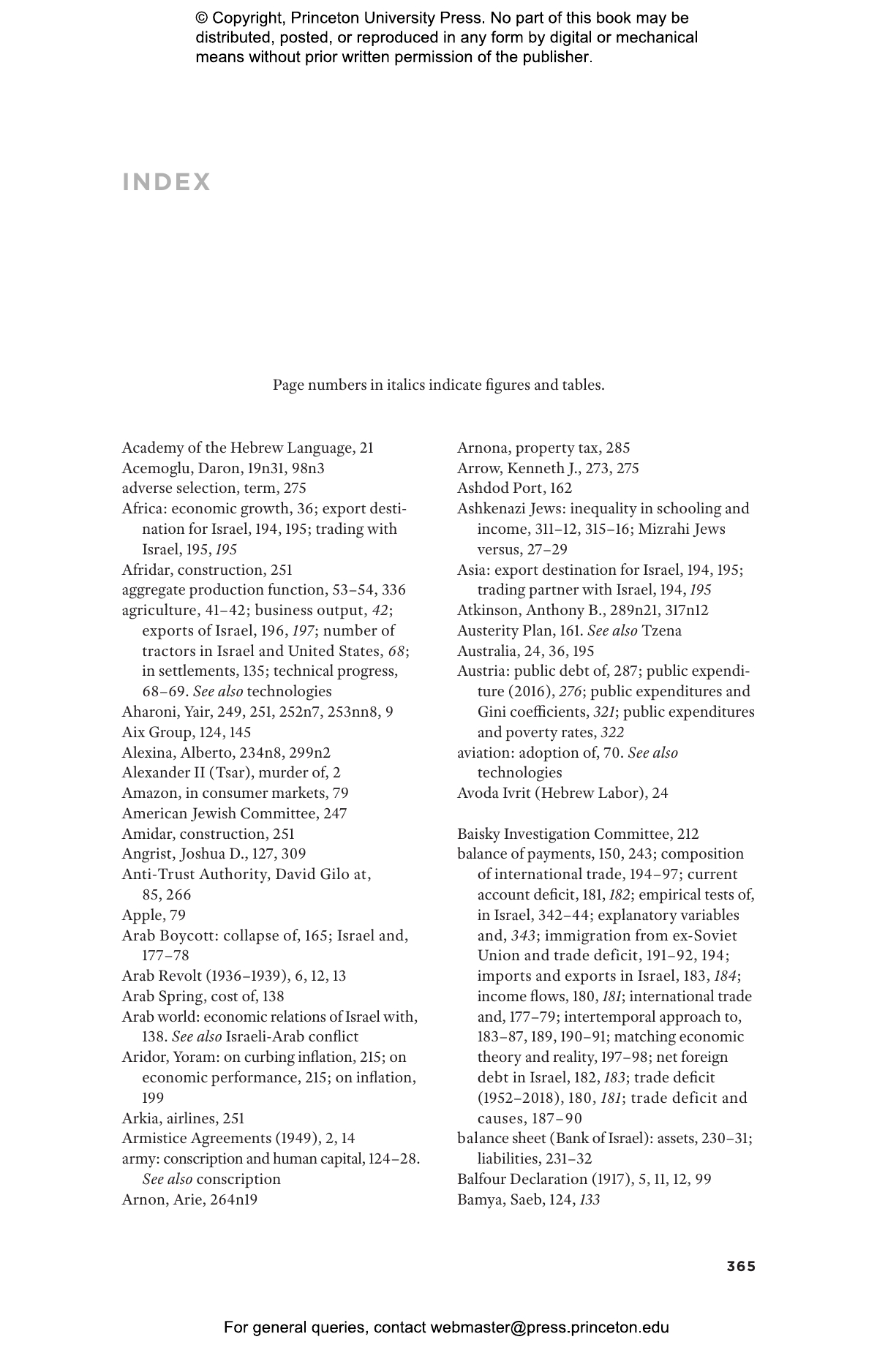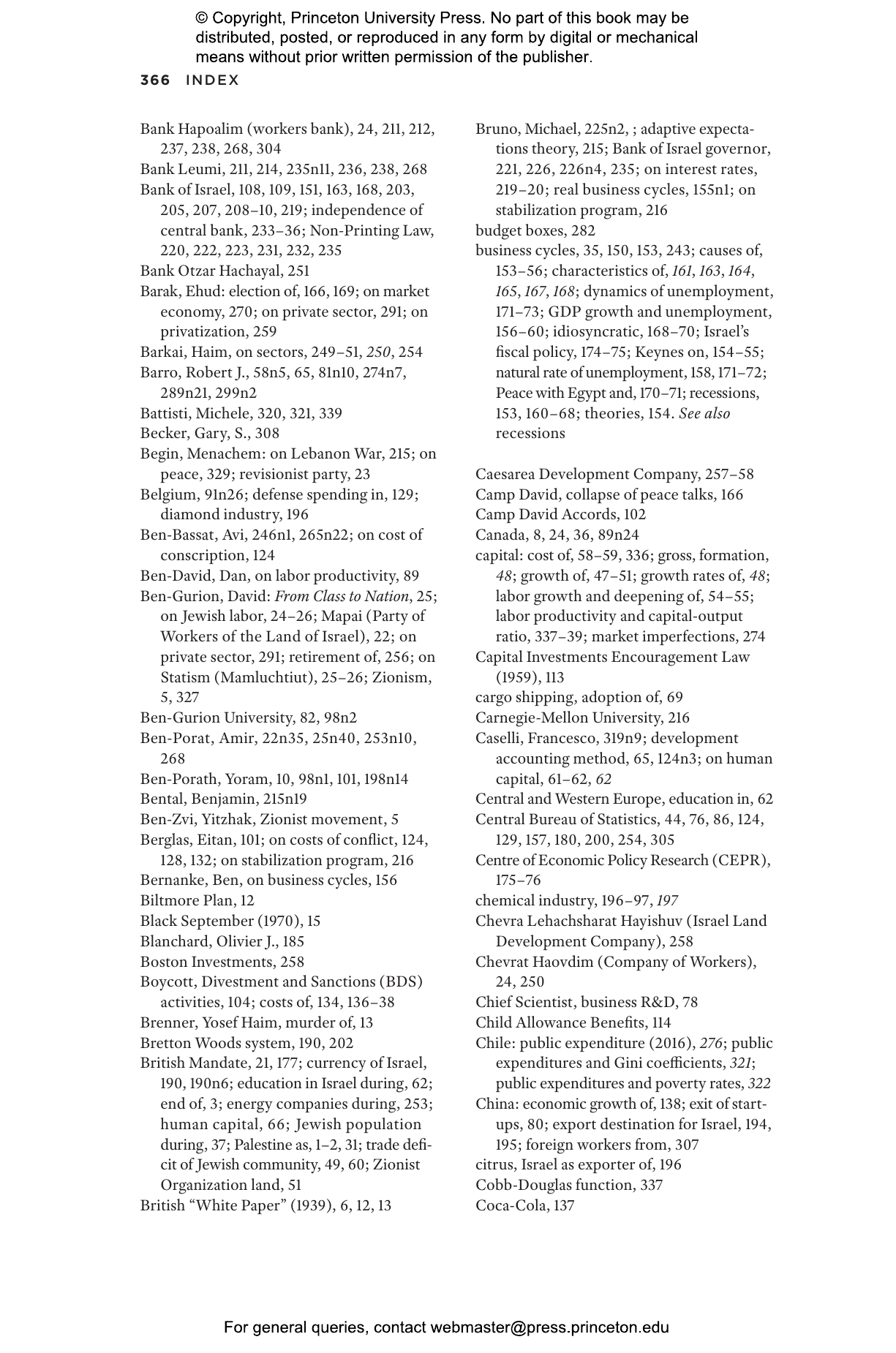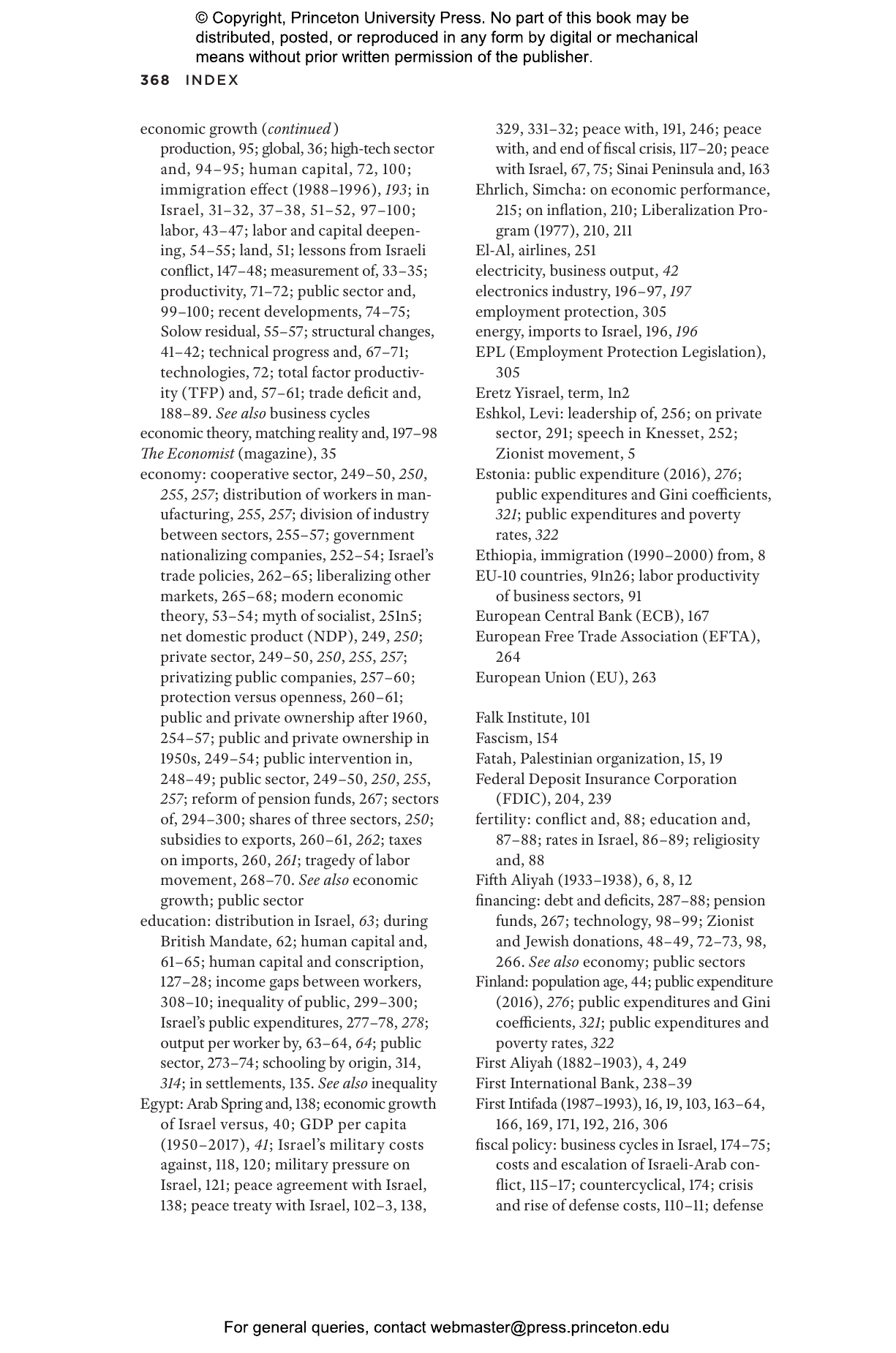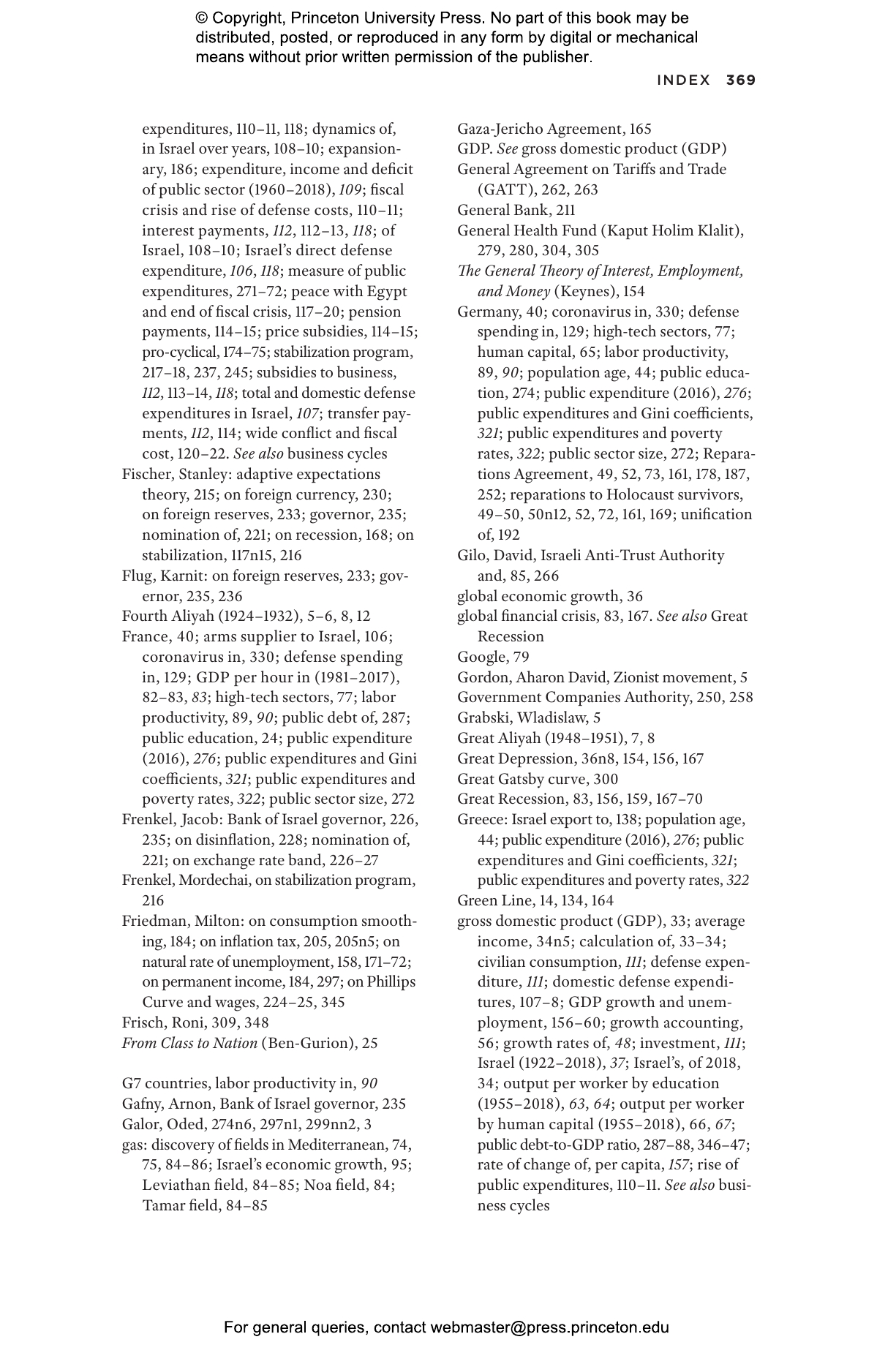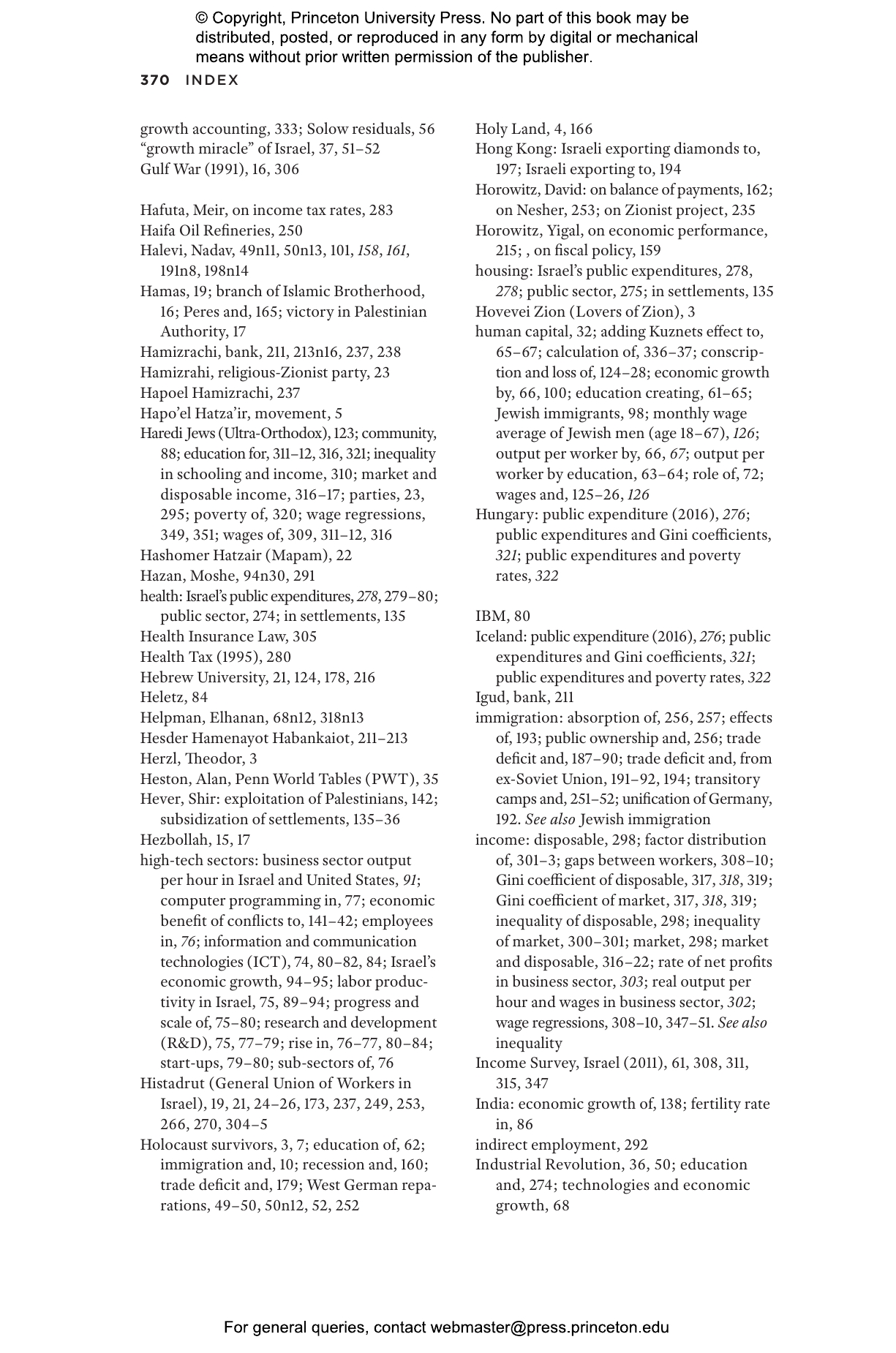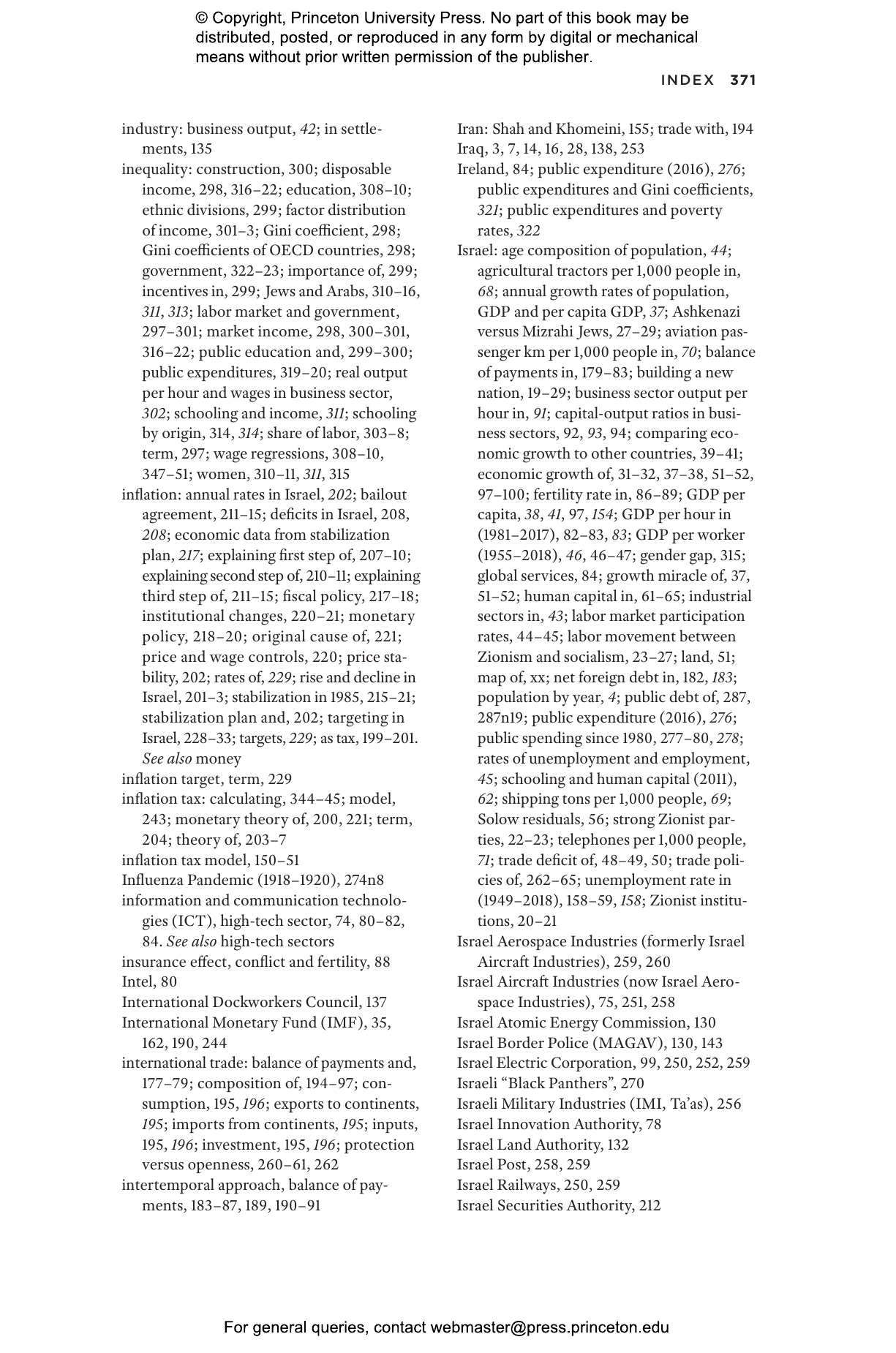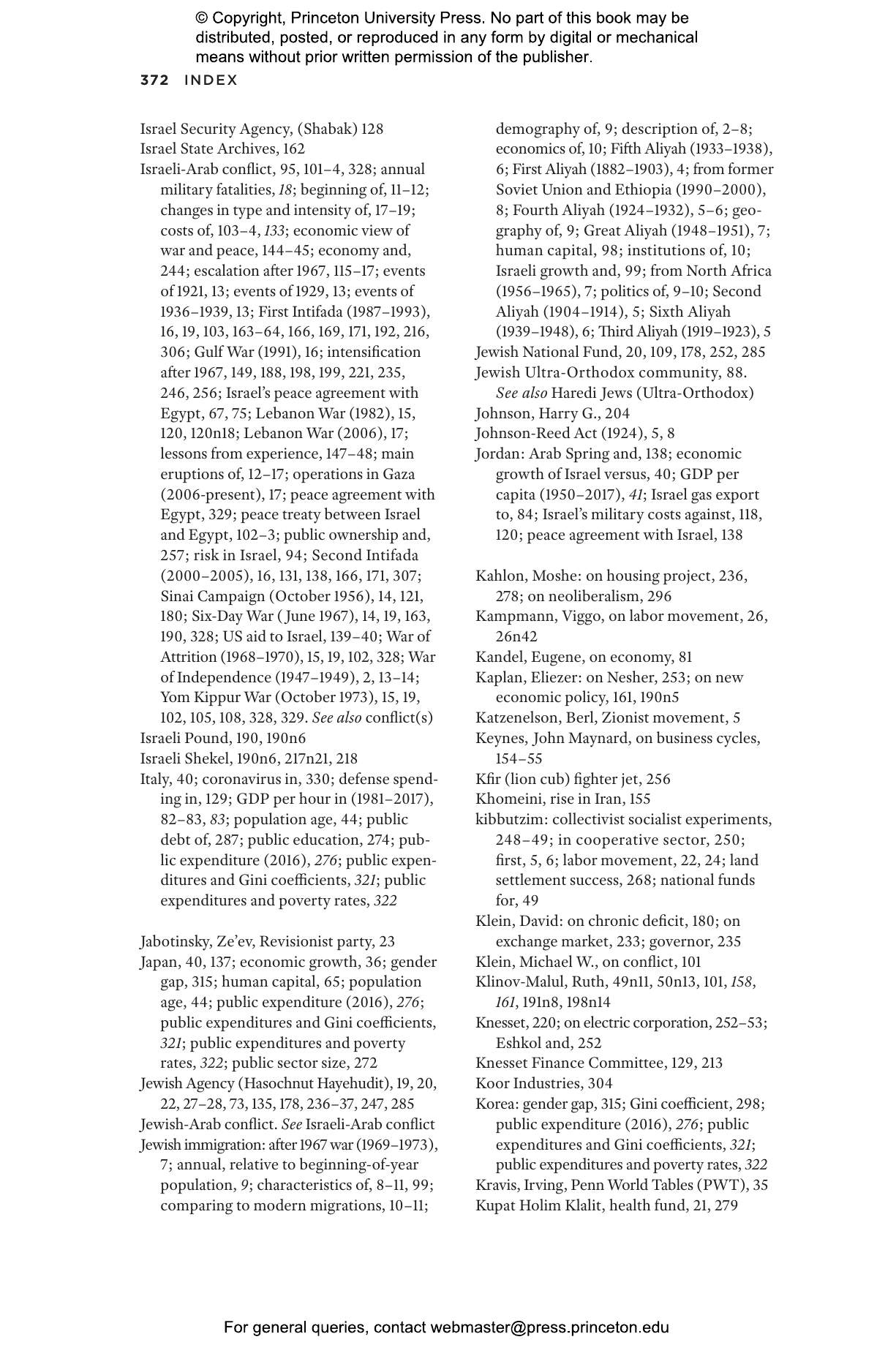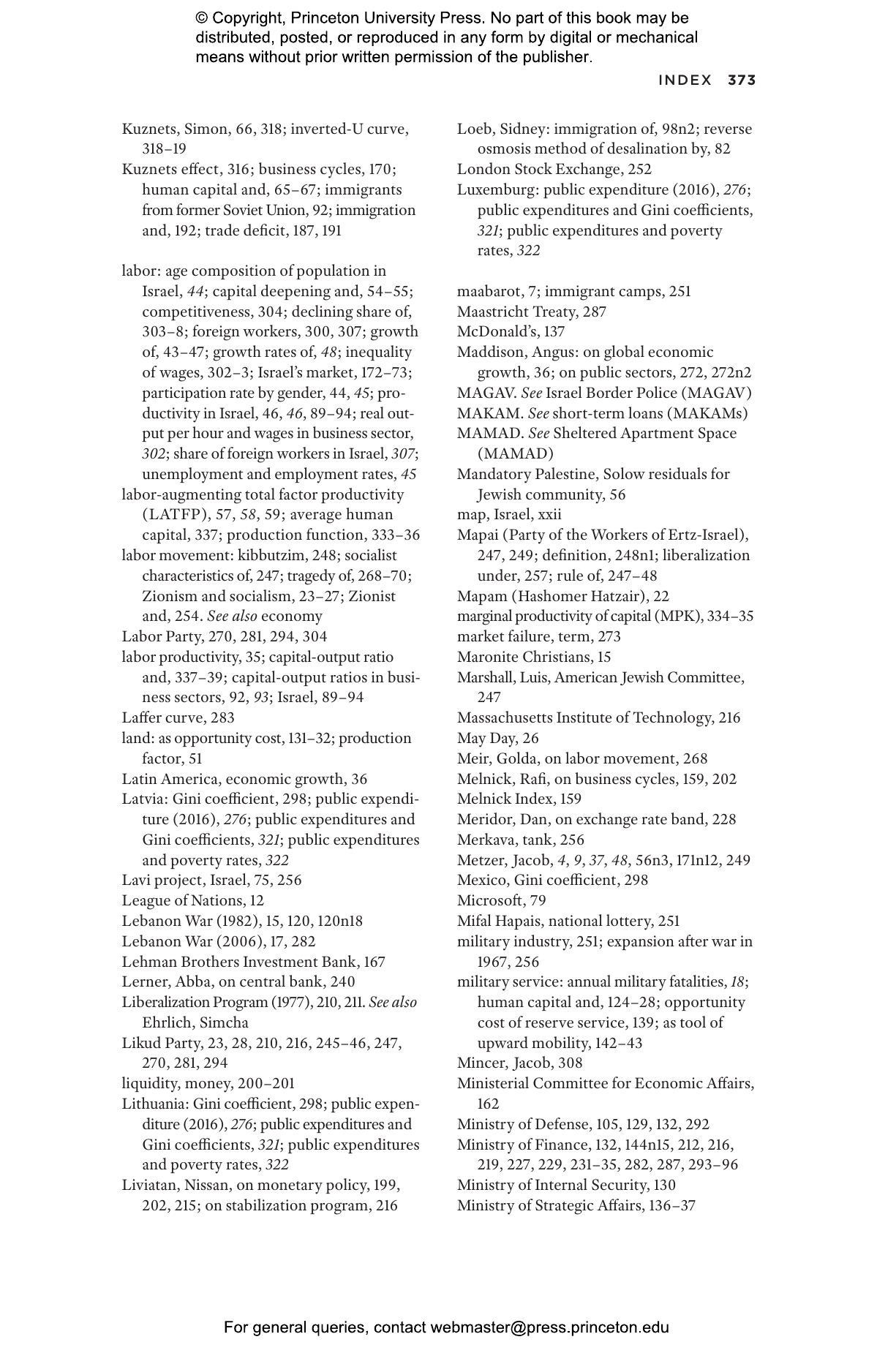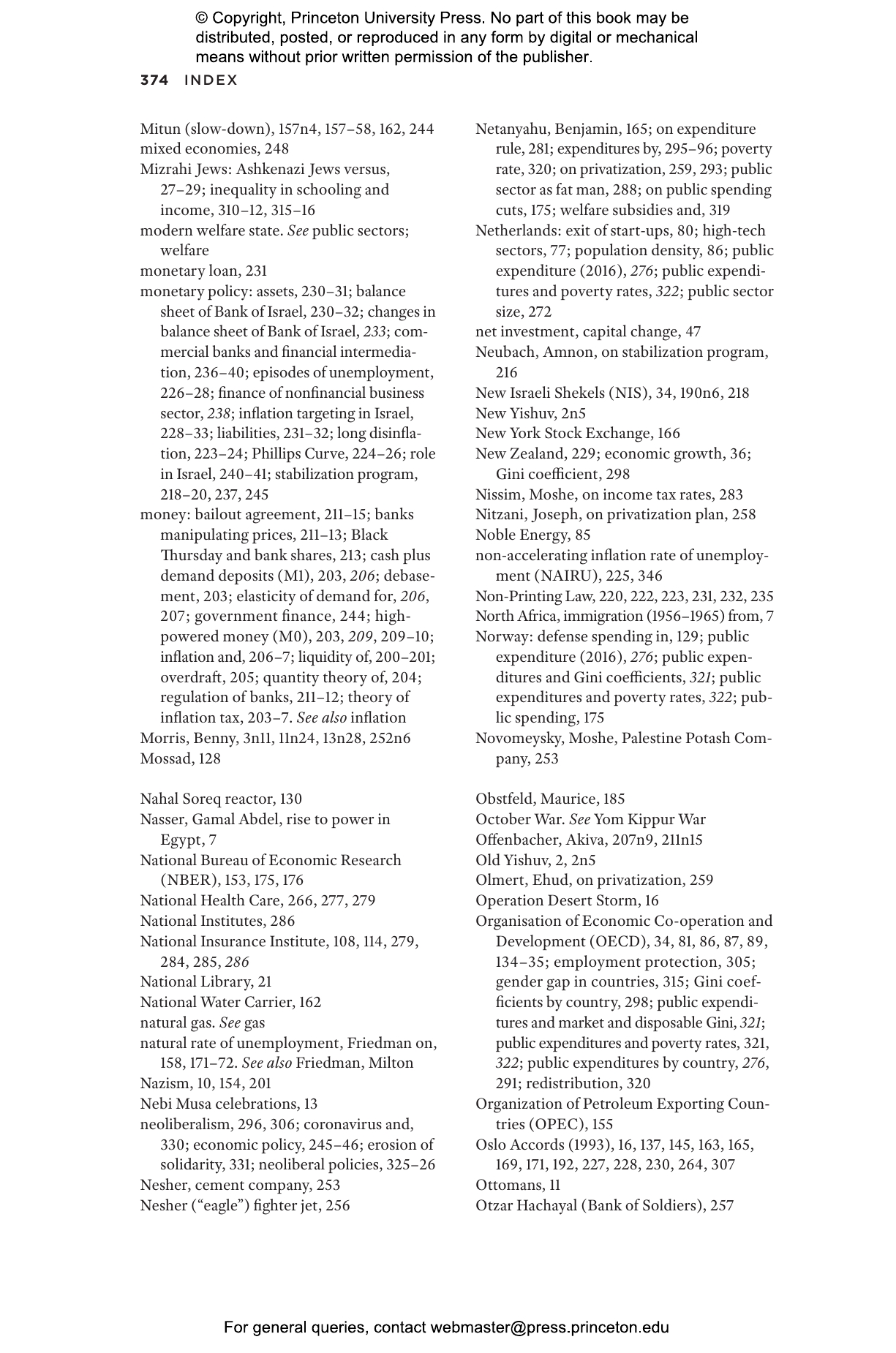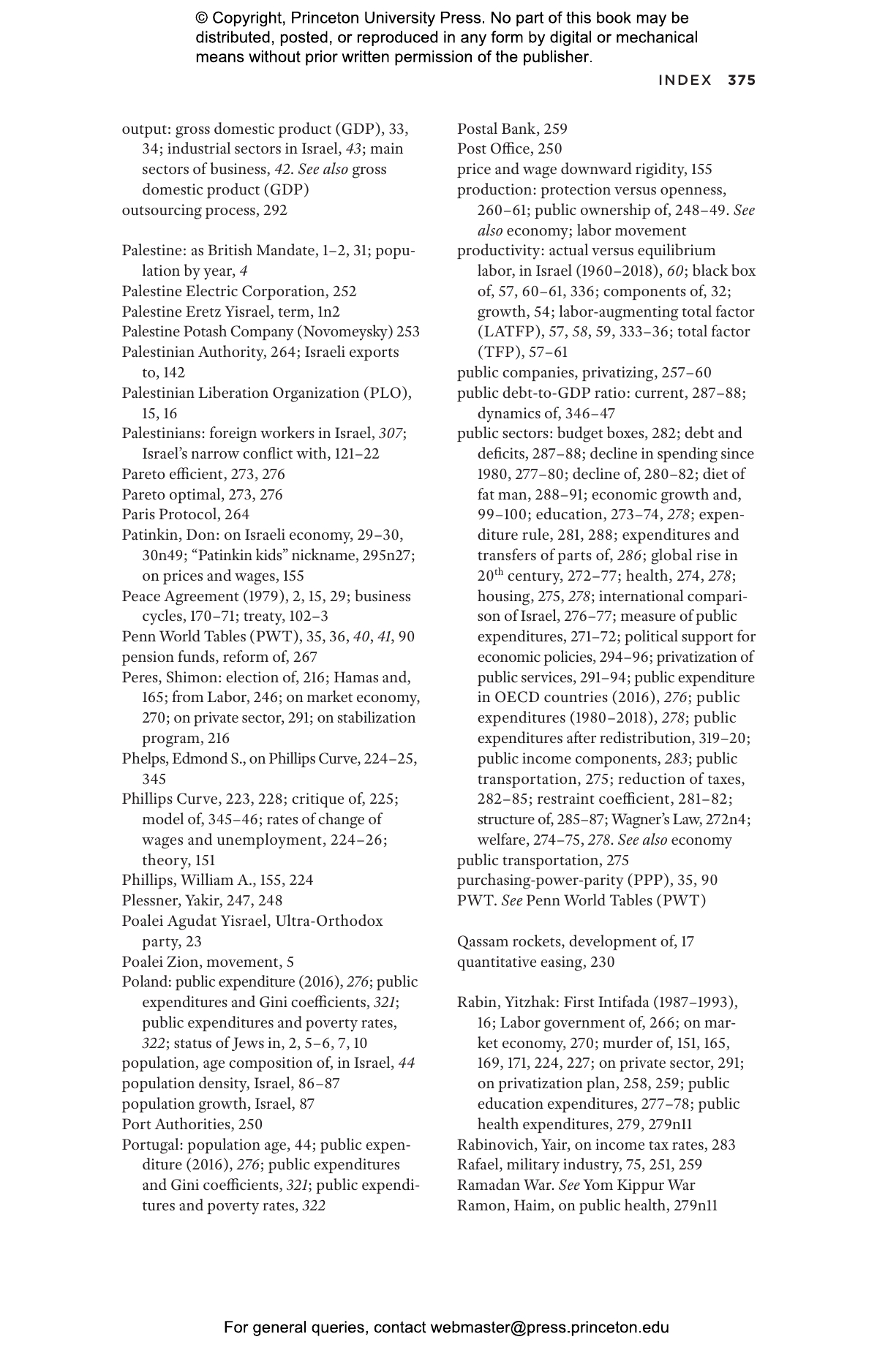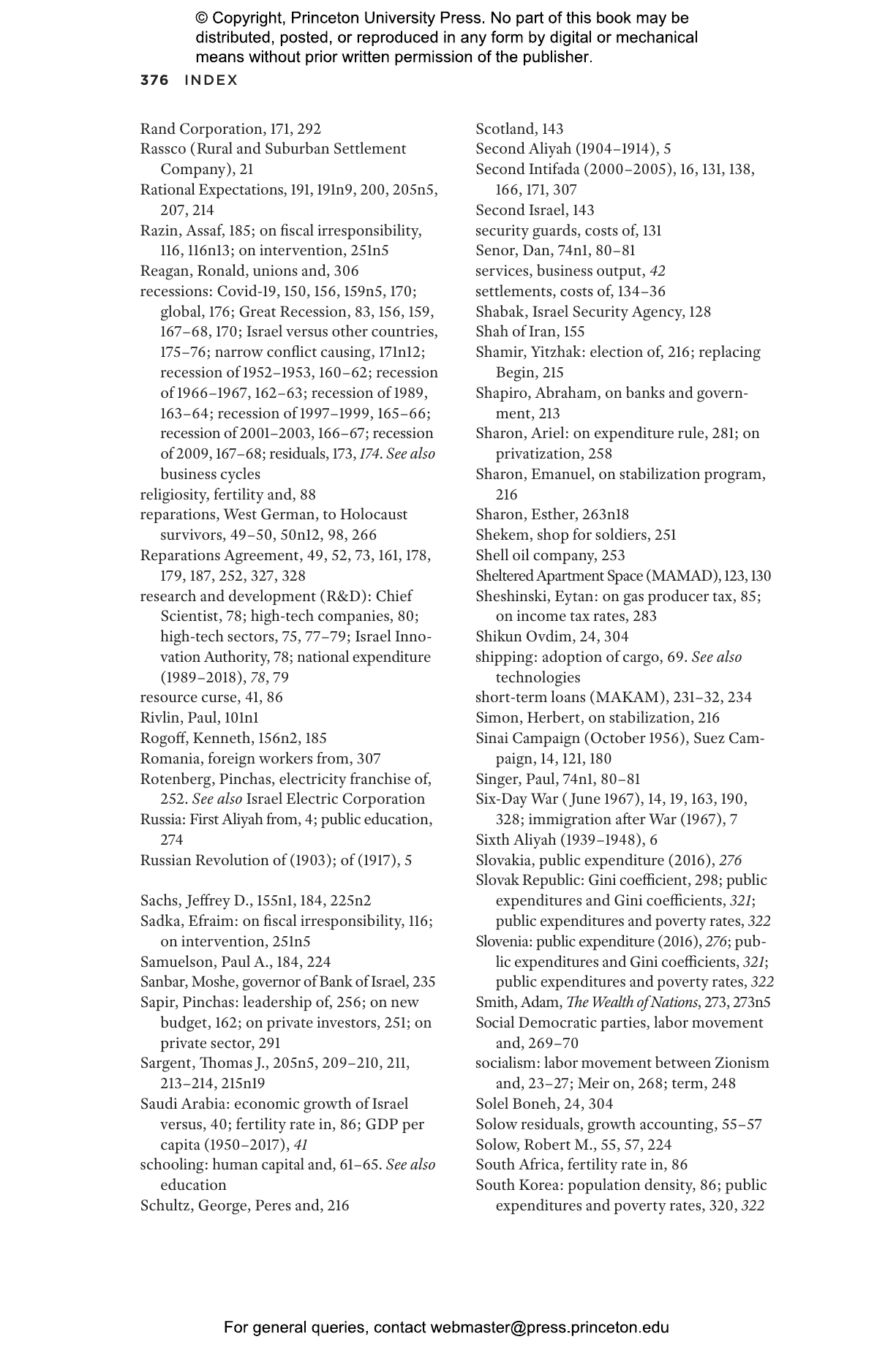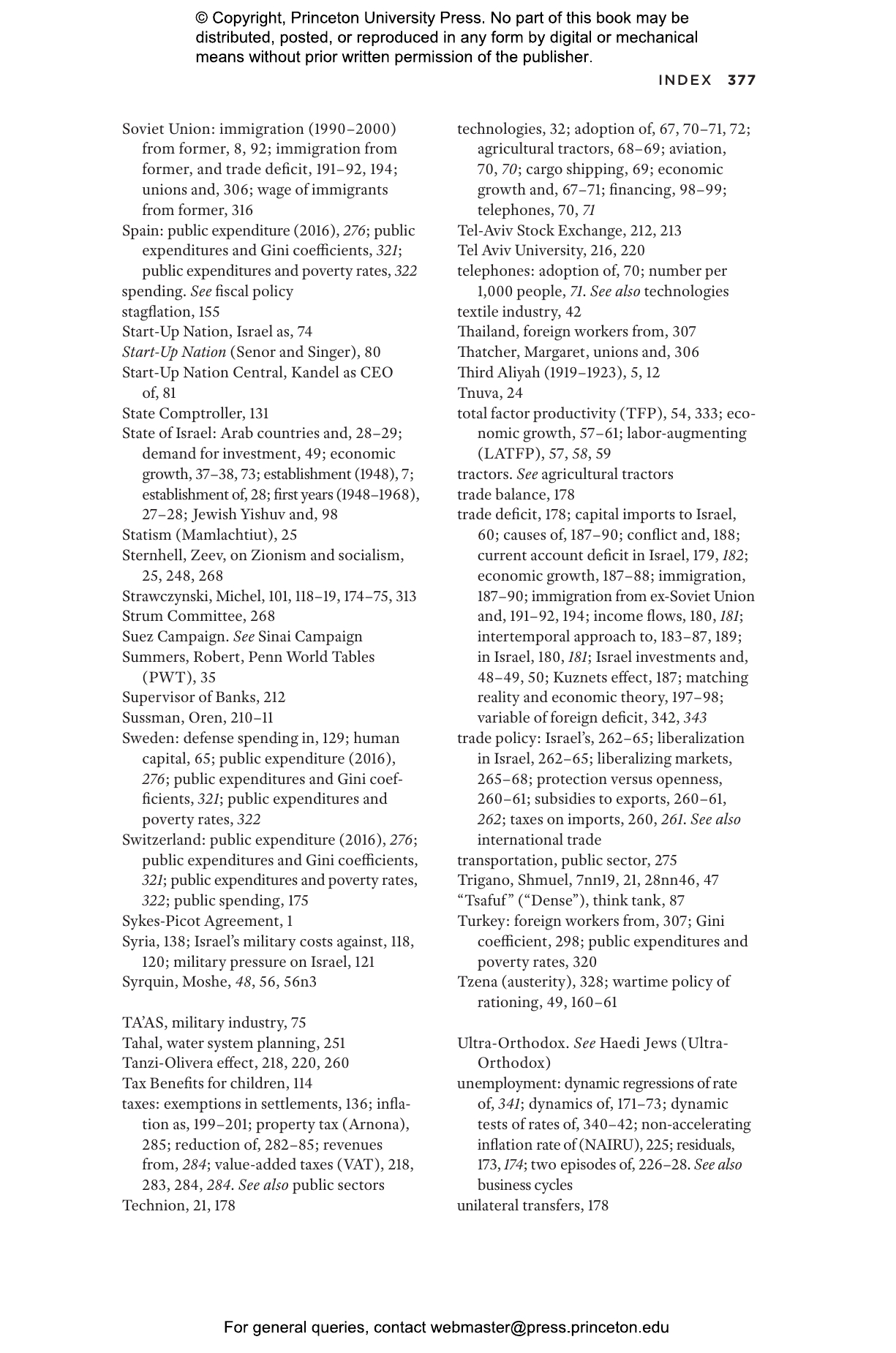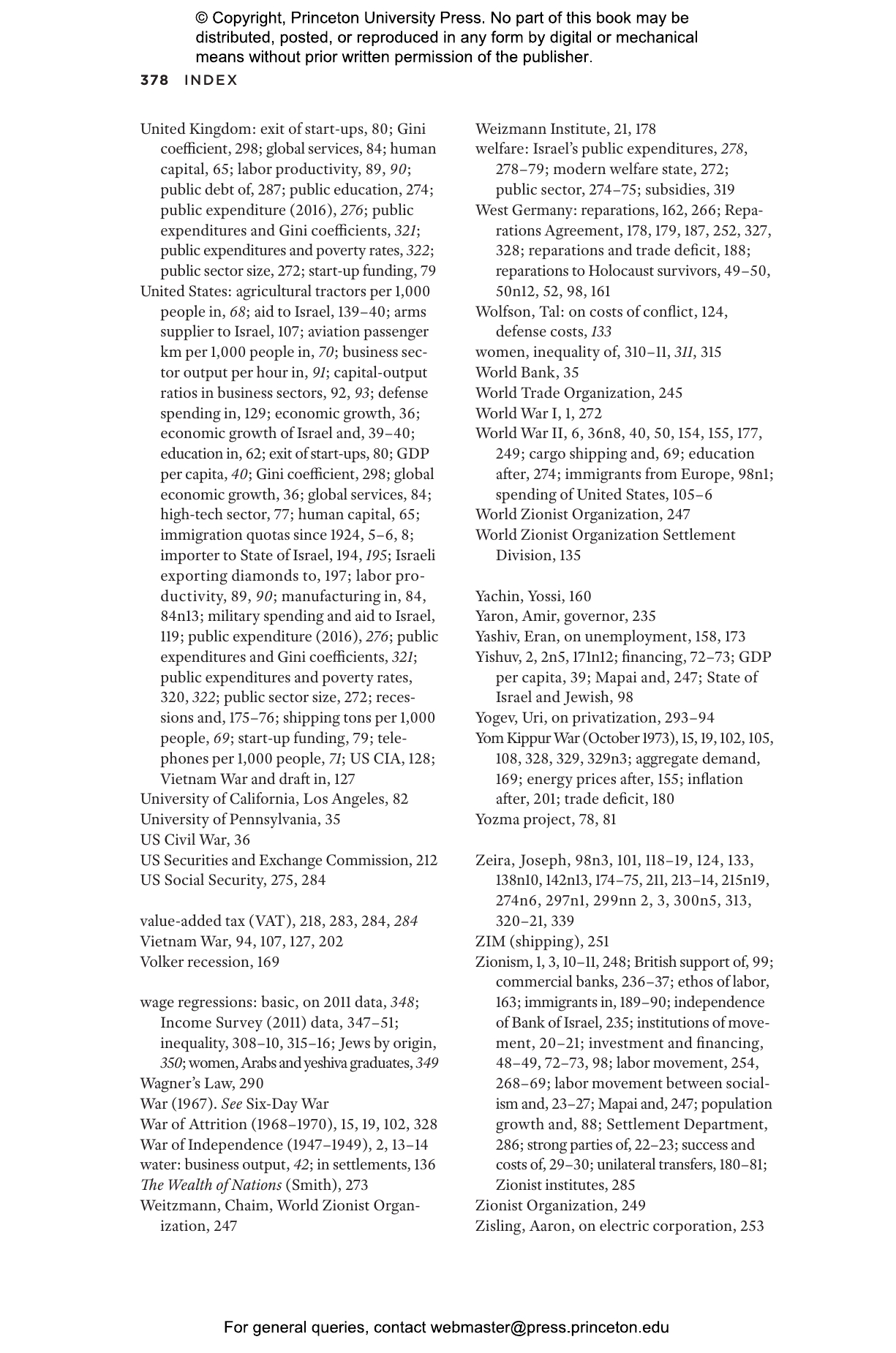The Israeli Economy: A Story of Success and Costs


Hardcover
- Price:
- $41.00/£35.00
- ISBN:
- Published (US):
- Nov 23, 2021
- Published (UK):
- Jan 11, 2022
- Copyright:
- 2021
- Pages:
- 408
- Size:
- 6.13 x 9.25 in.
- 45 b/w illus. 46 tables. 1 map.
Paperback
ebook (EPUB via app)
ebook (PDF via app)
In 1922, there were ninety thousand Jews in Palestine, a small country in a poor and volatile region. Today, Israel has a population of nine million and is one of the richest countries in the world. The Israeli Economy tells the story of this remarkable transformation, shedding critical new light on Israel’s rapid economic growth.
Joseph Zeira takes readers from those early days to today, describing how Israel’s economic development occurred amid intense fighting with the Palestinians and neighboring Arab countries. He reveals how the new state’s astonishing growth continued into the early 1970s, and traces this growth to public investment in education and to large foreign transfers. Zeira analyzes the costs of the Arab-Israeli conflict, demonstrating how economic output could be vastly greater with a comprehensive peace. He discusses how Israel went through intensive neoliberal economic policies in recent decades, and shows how these policies not only failed to enhance economic performance, but led to significant social inequality.
Based on more than two decades of groundbreaking research, The Israeli Economy is an in-depth survey of a modern economy that has experienced rapid growth, wars, immigration waves, and other significant shocks. It thus offers important lessons for nations around the world.

